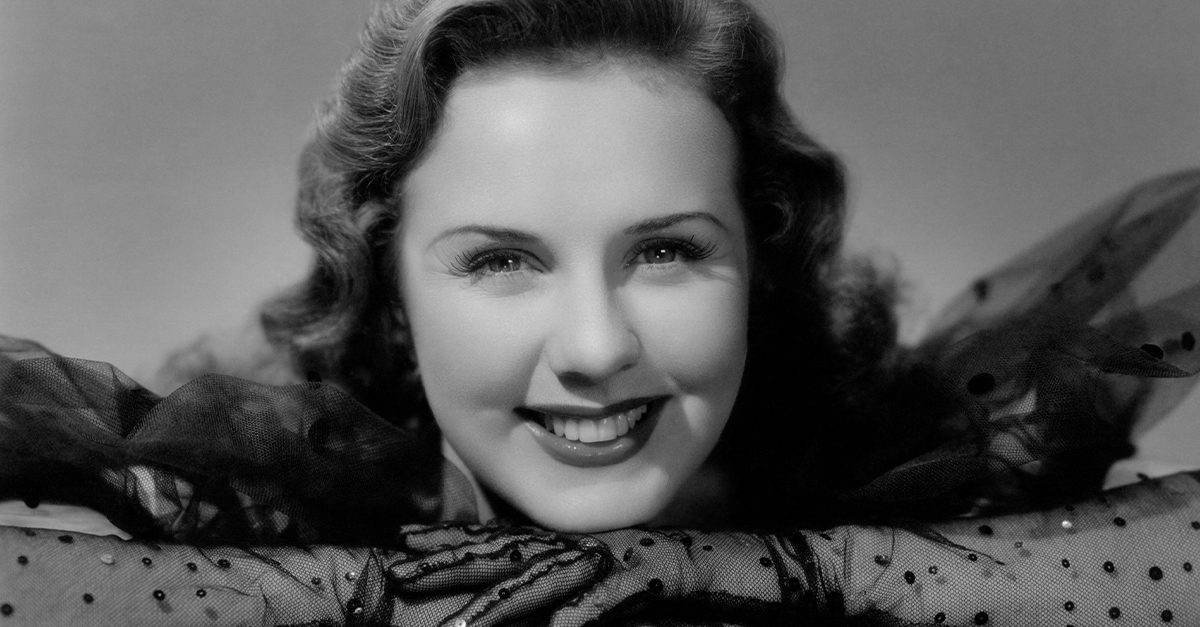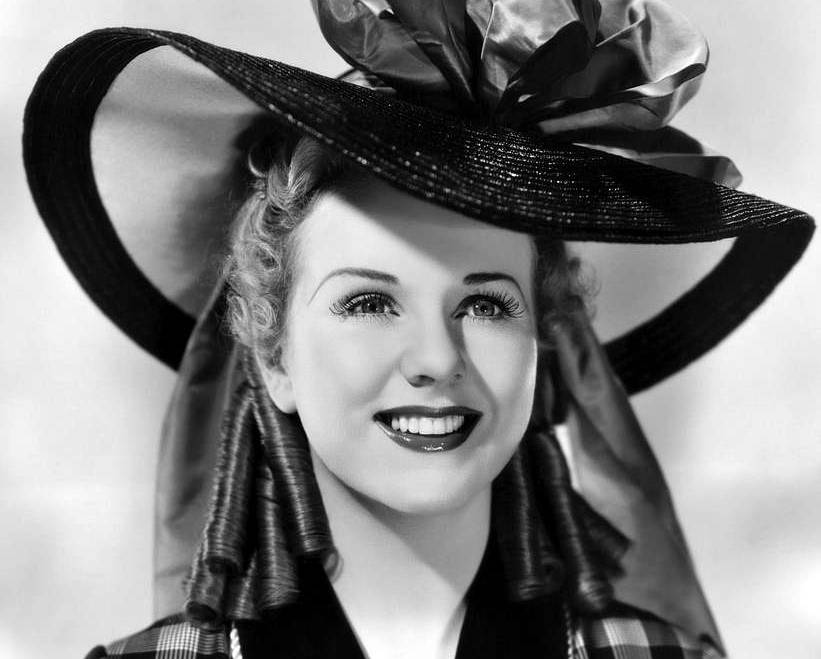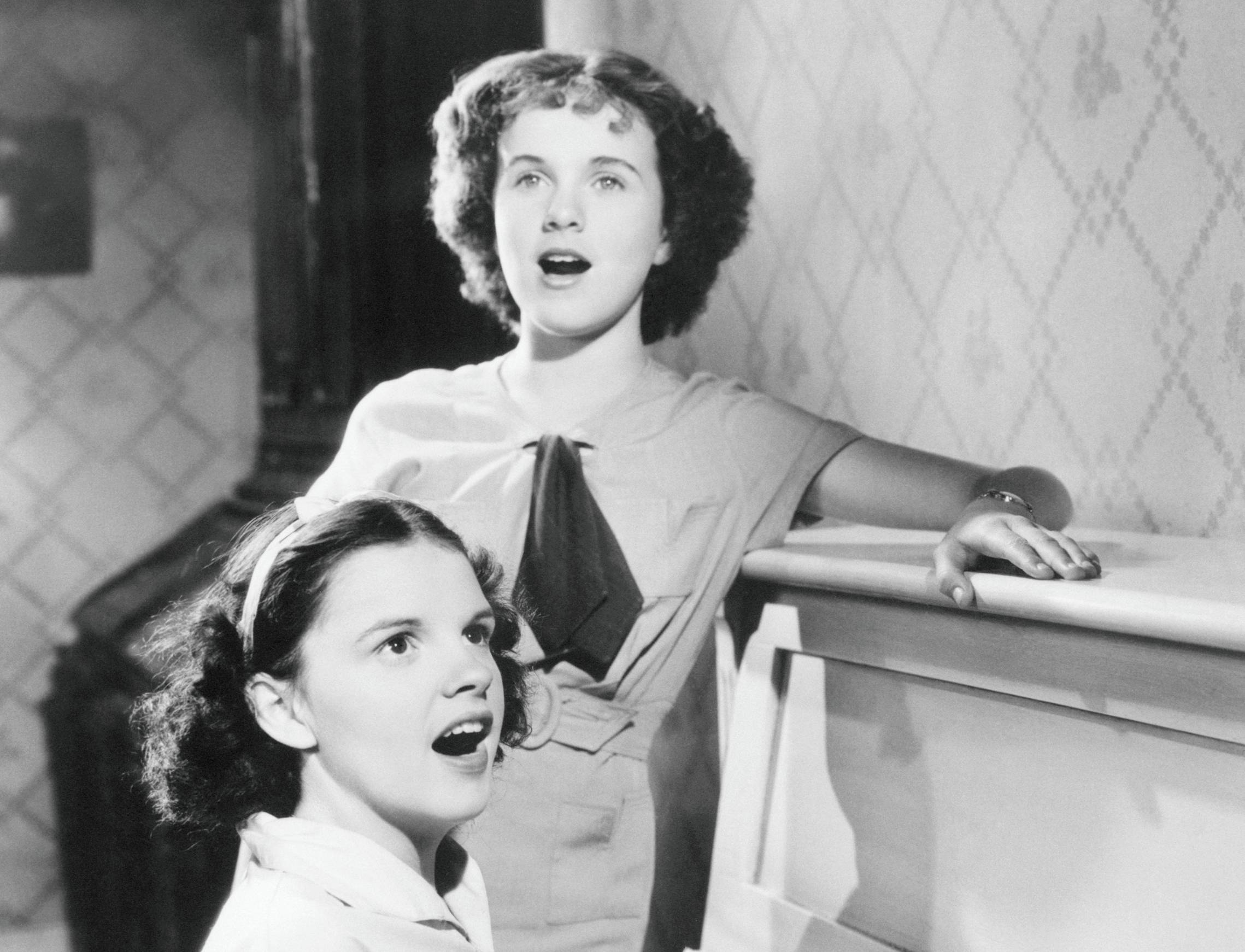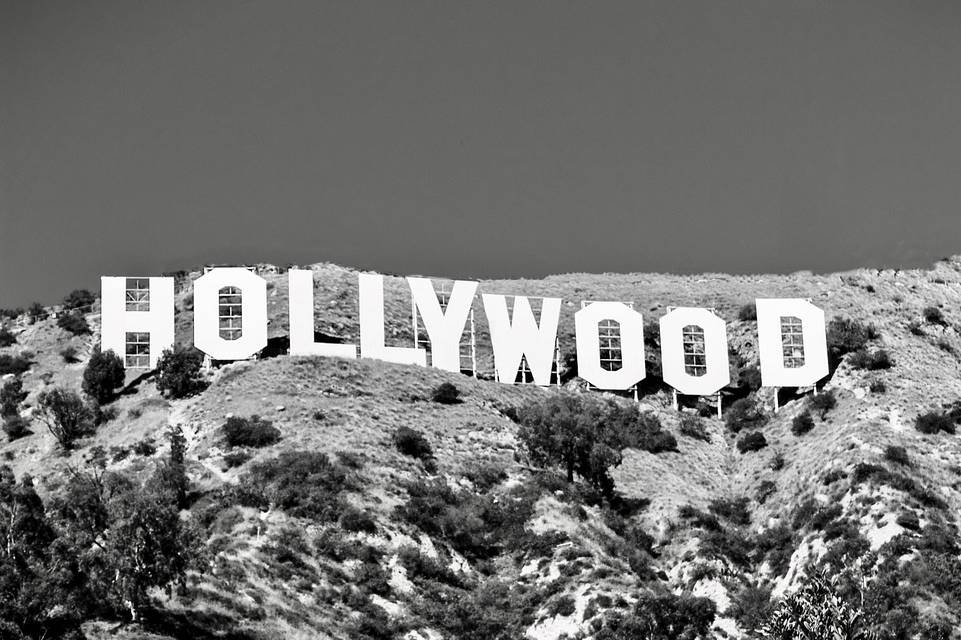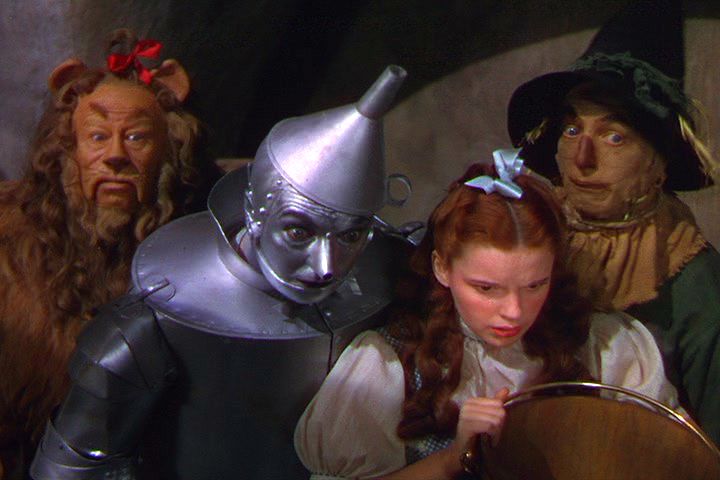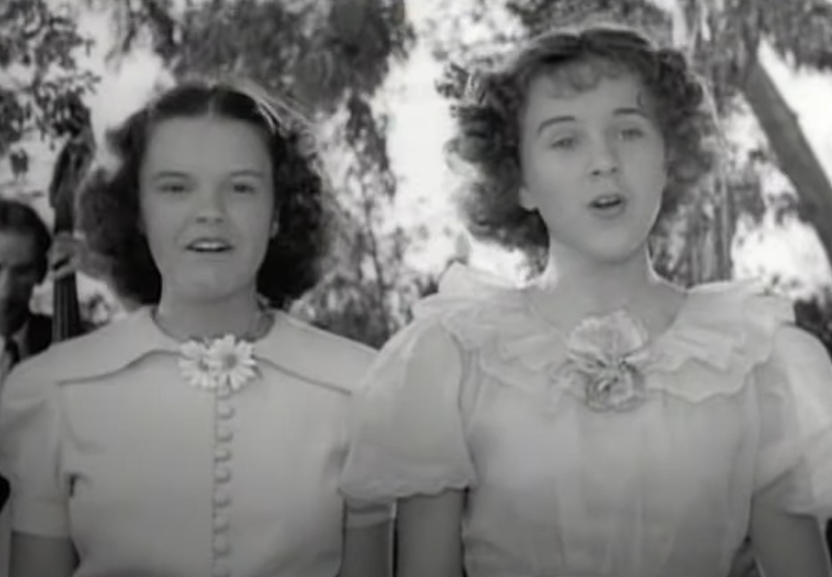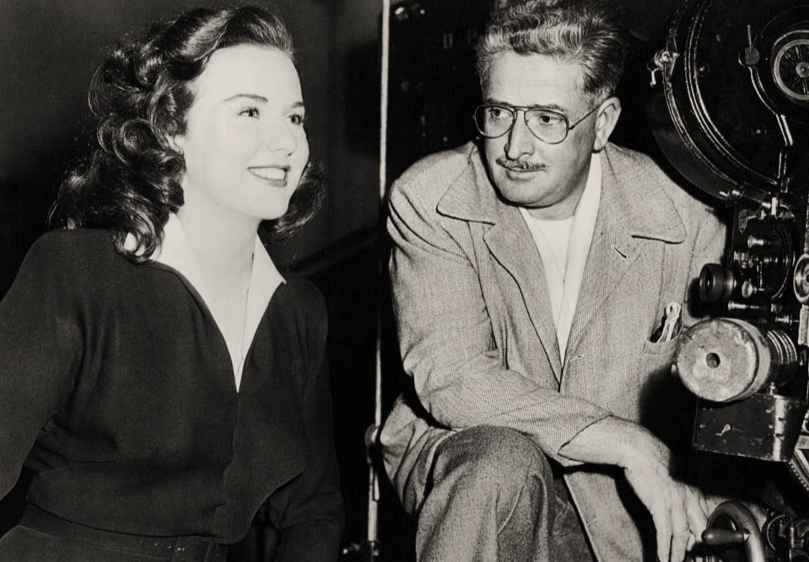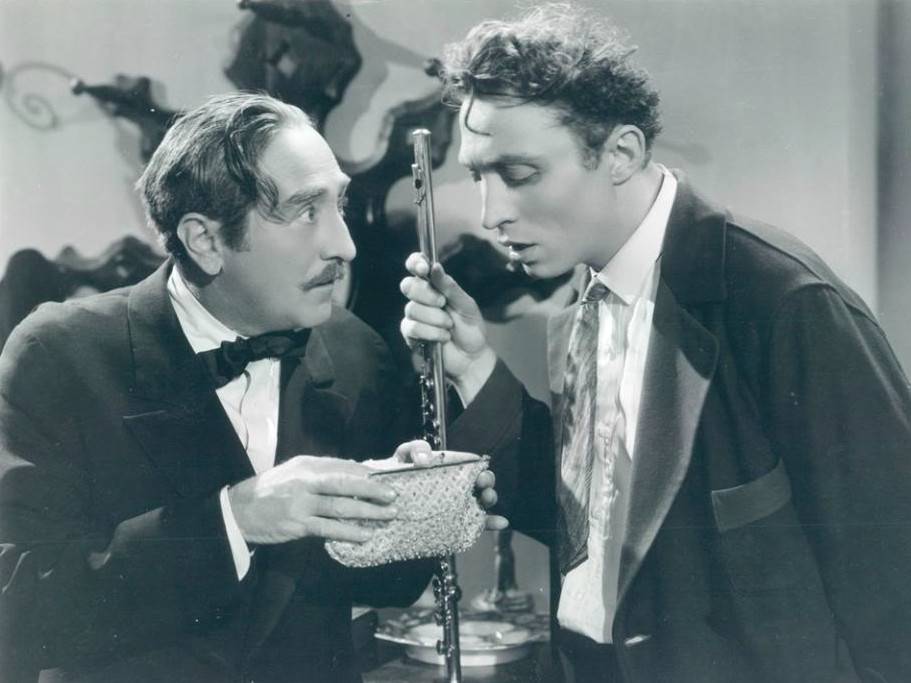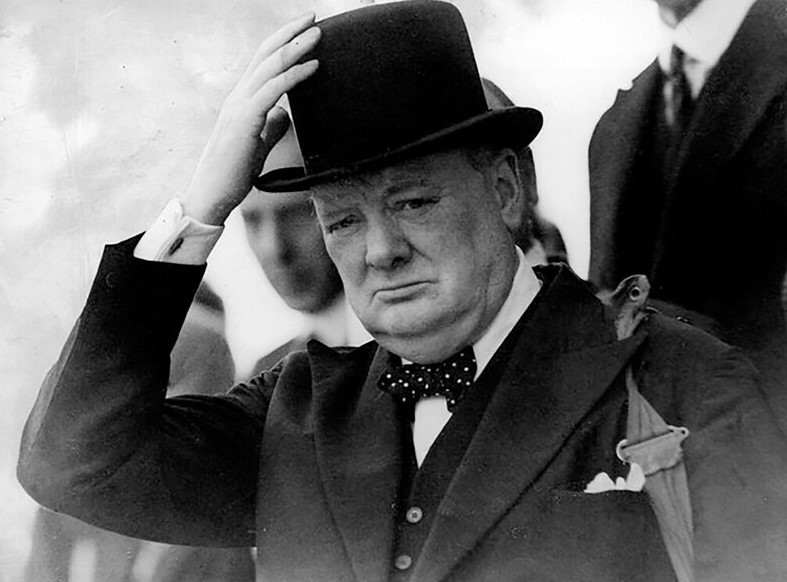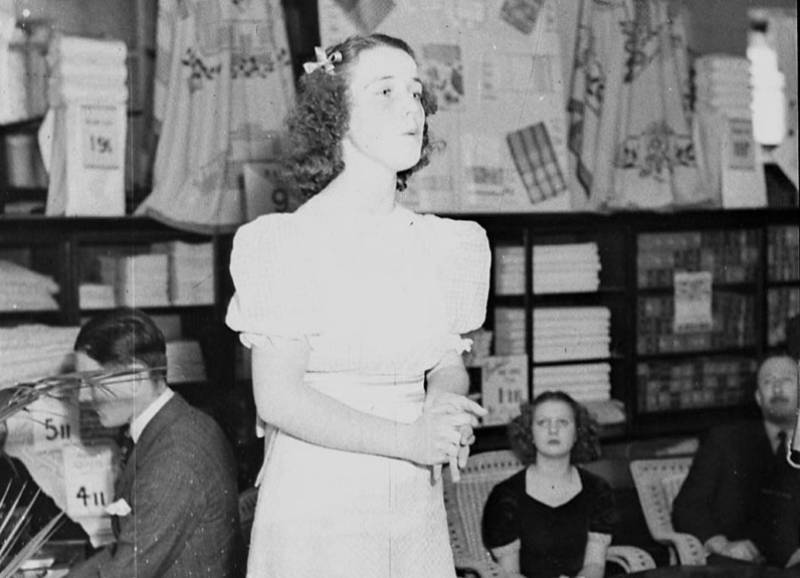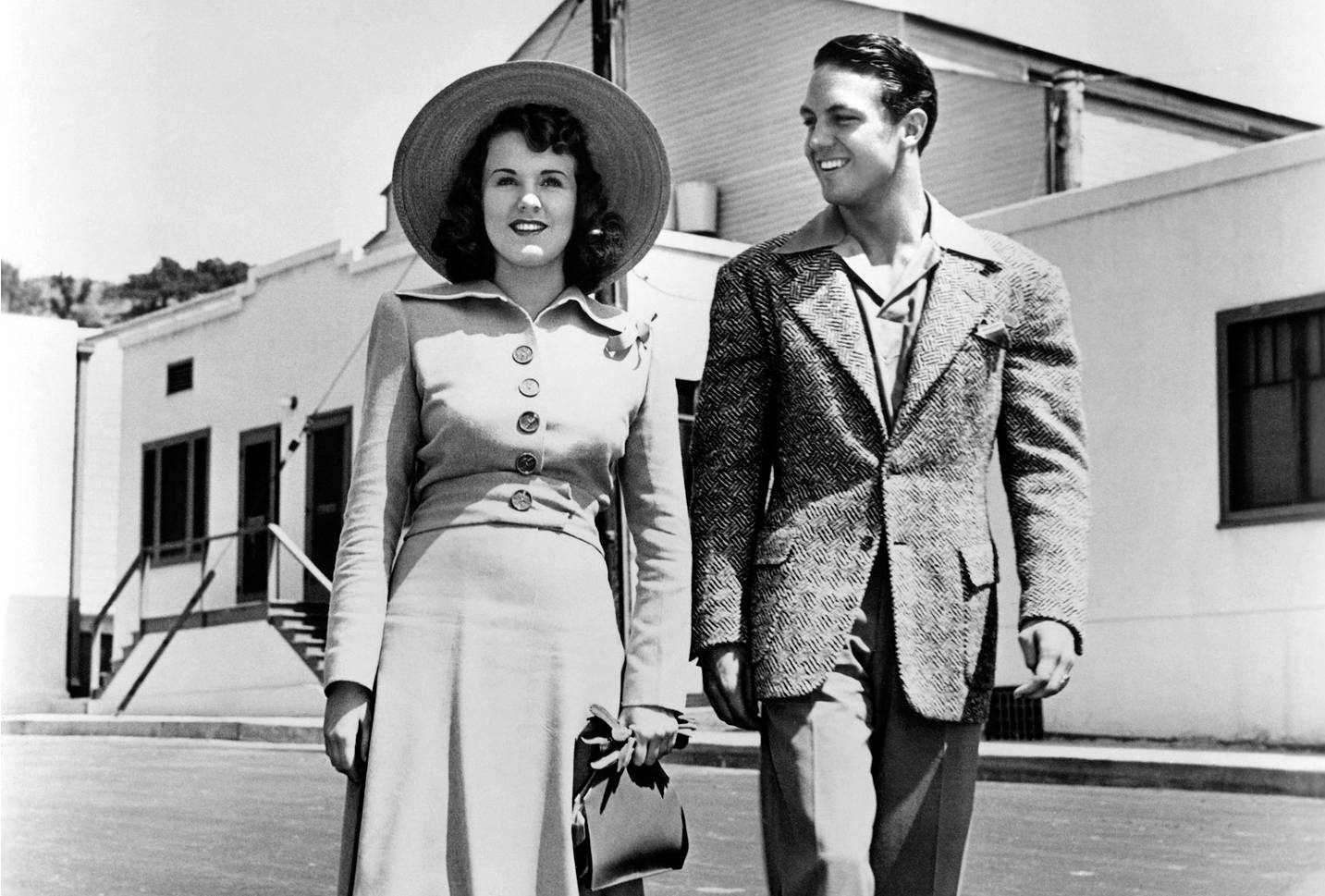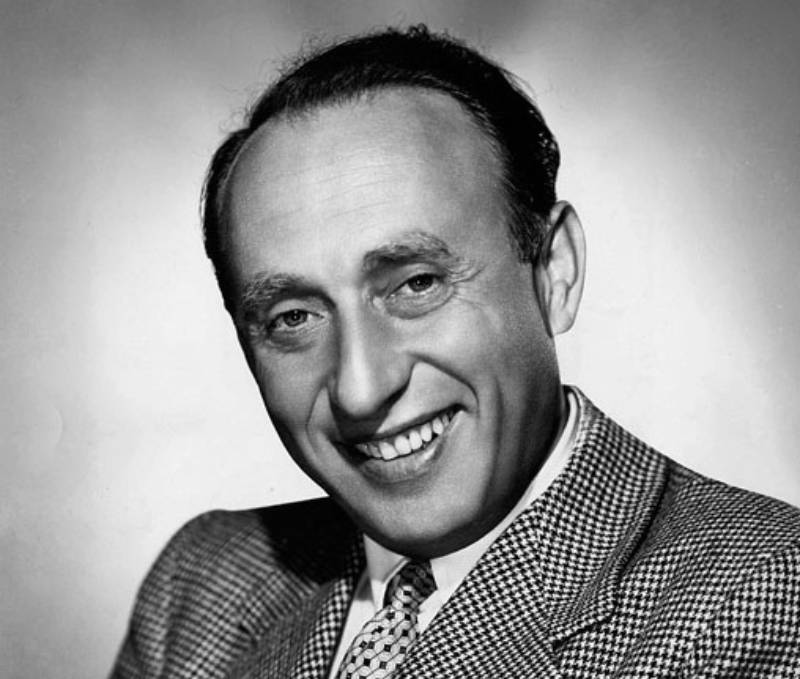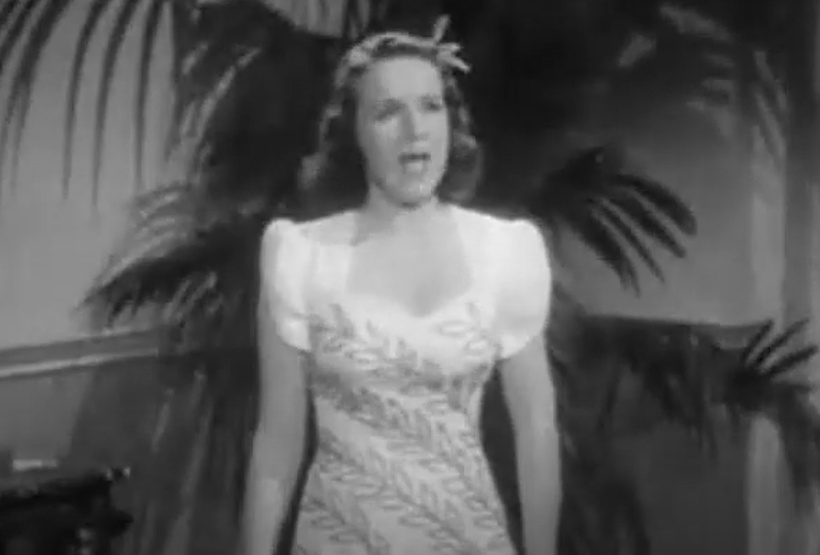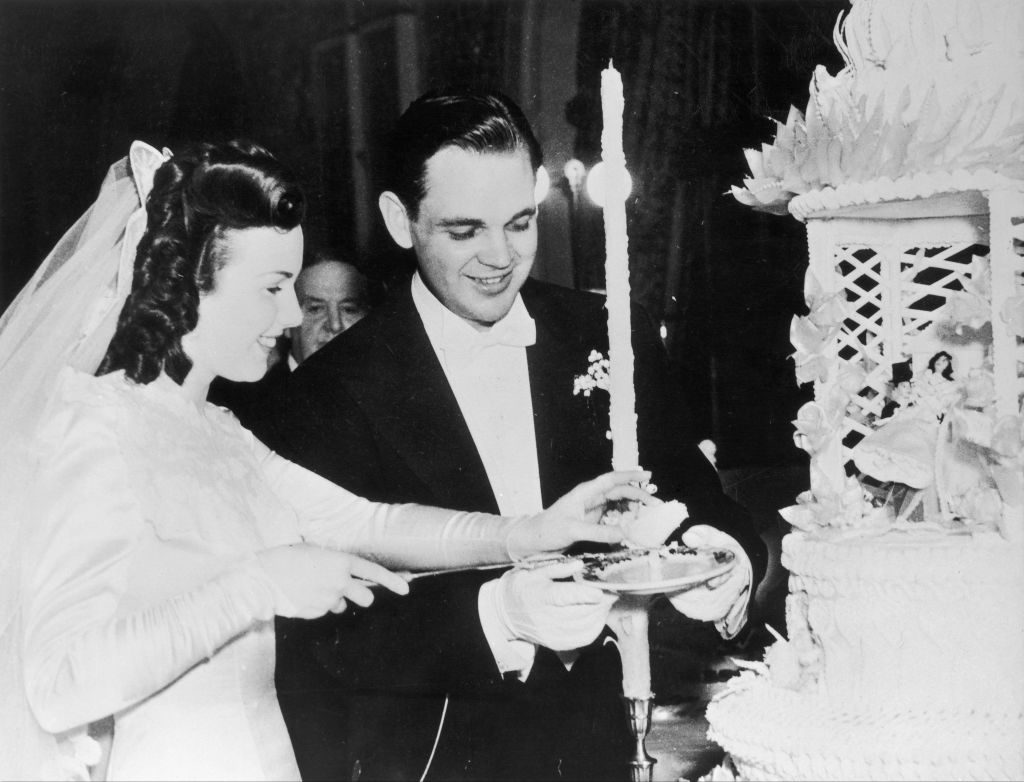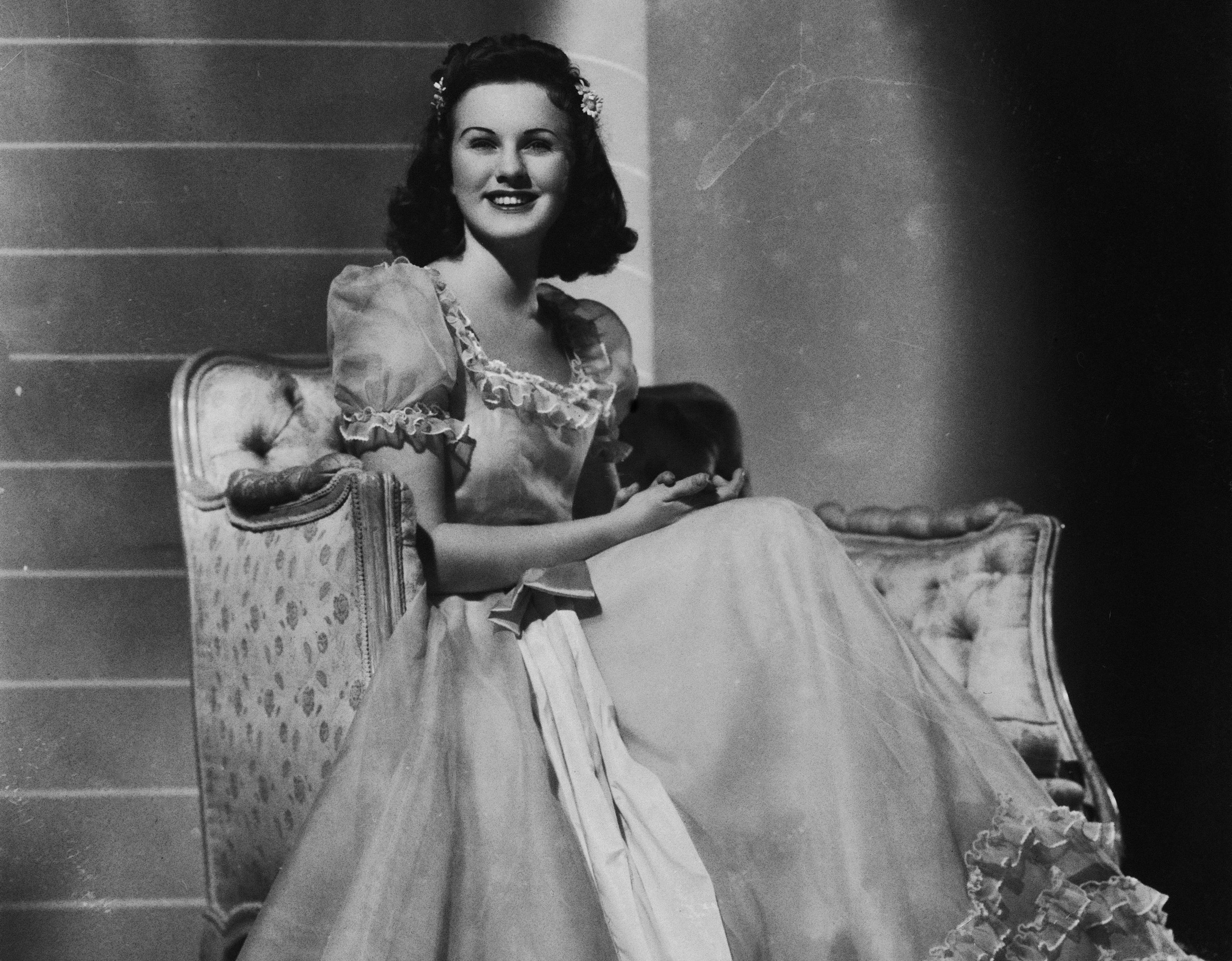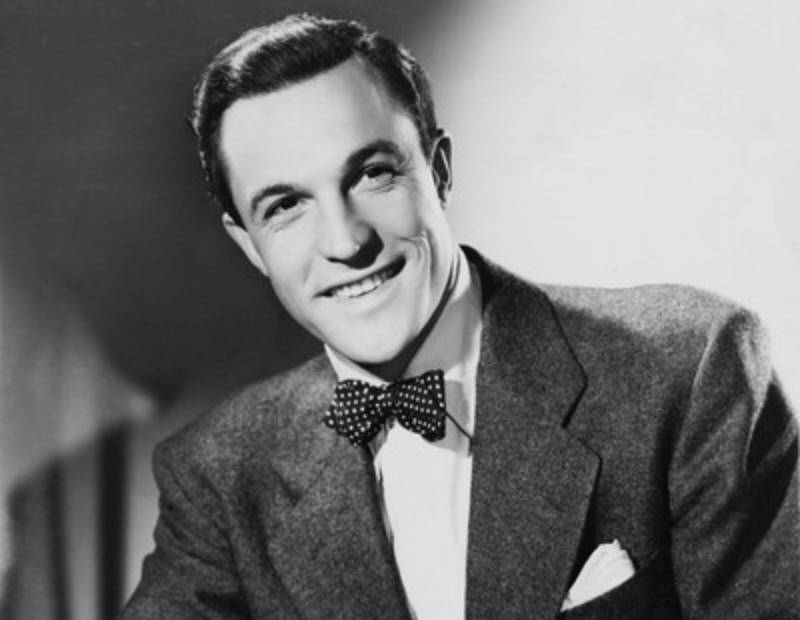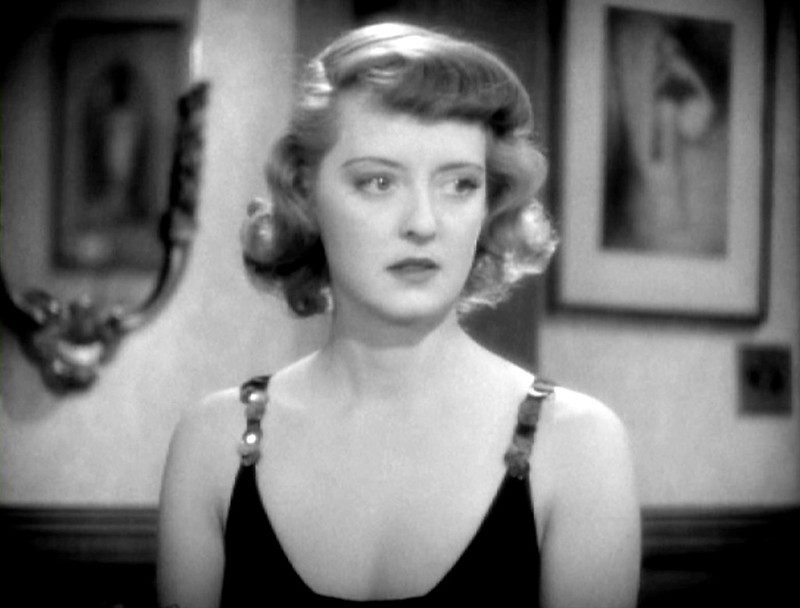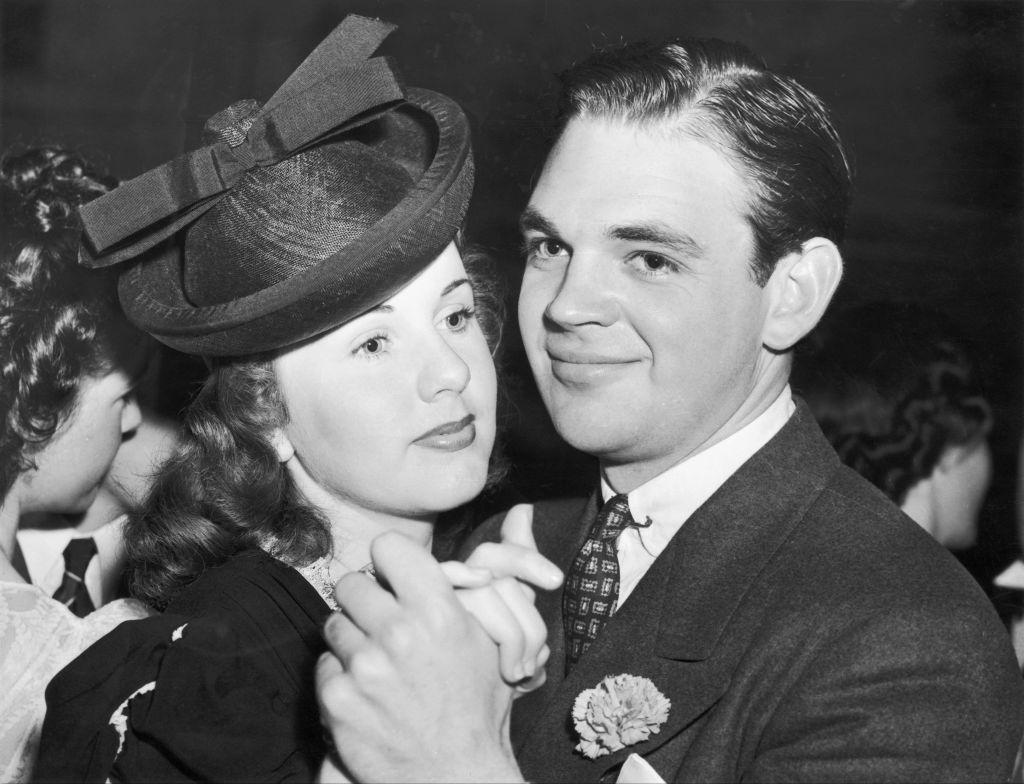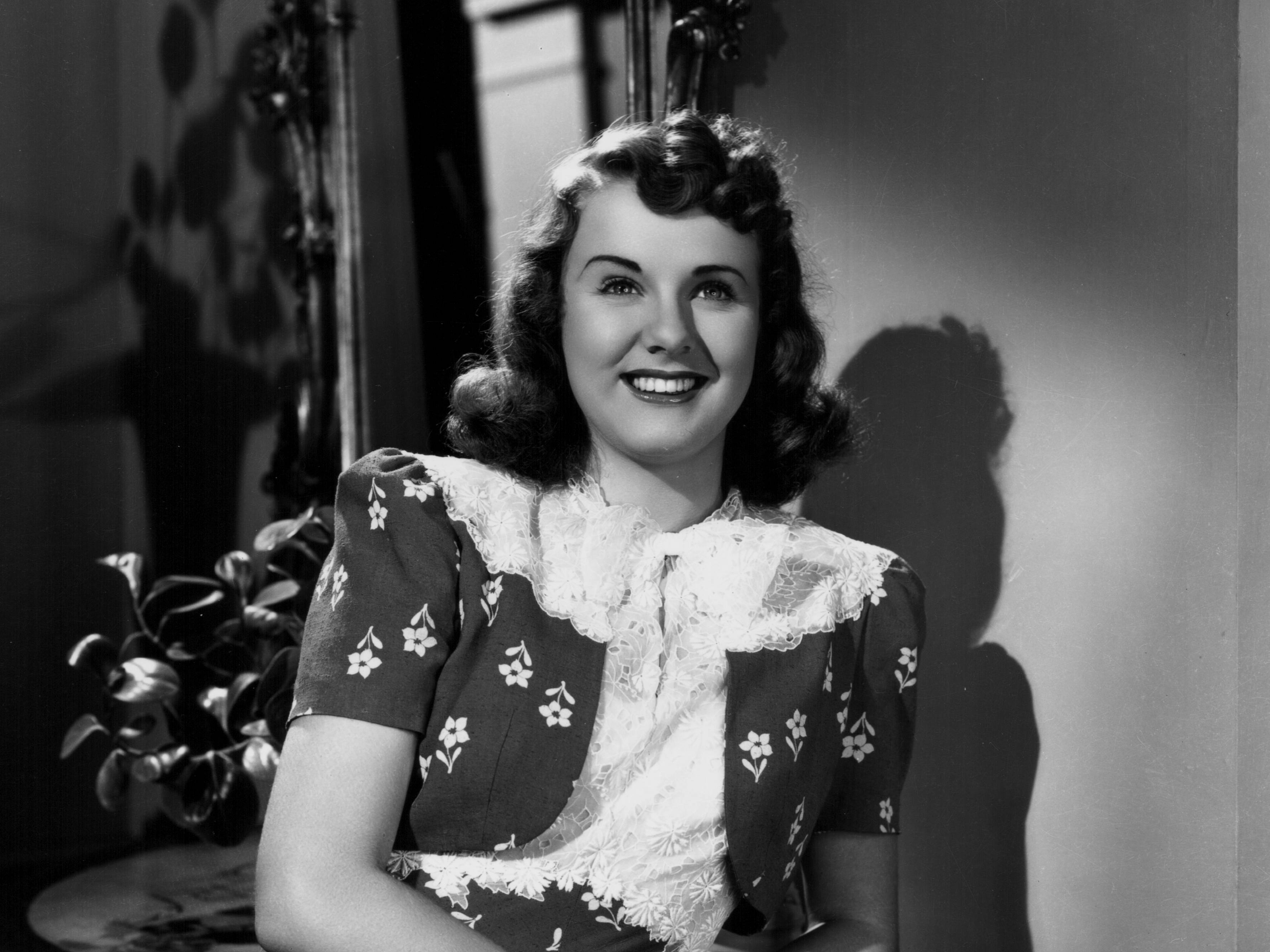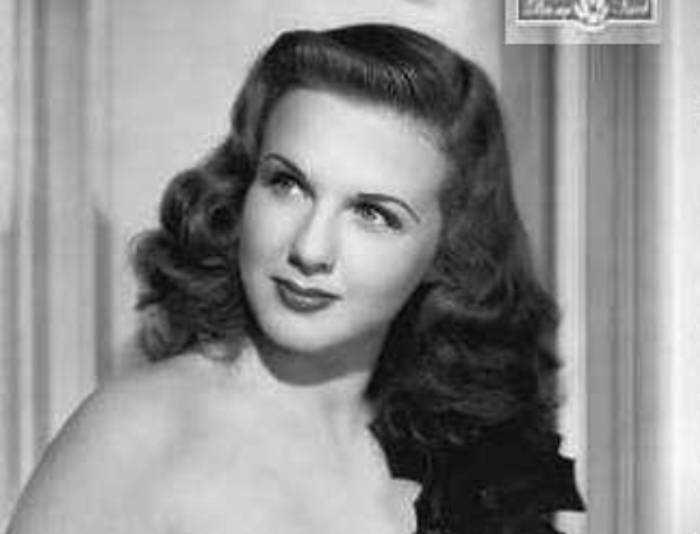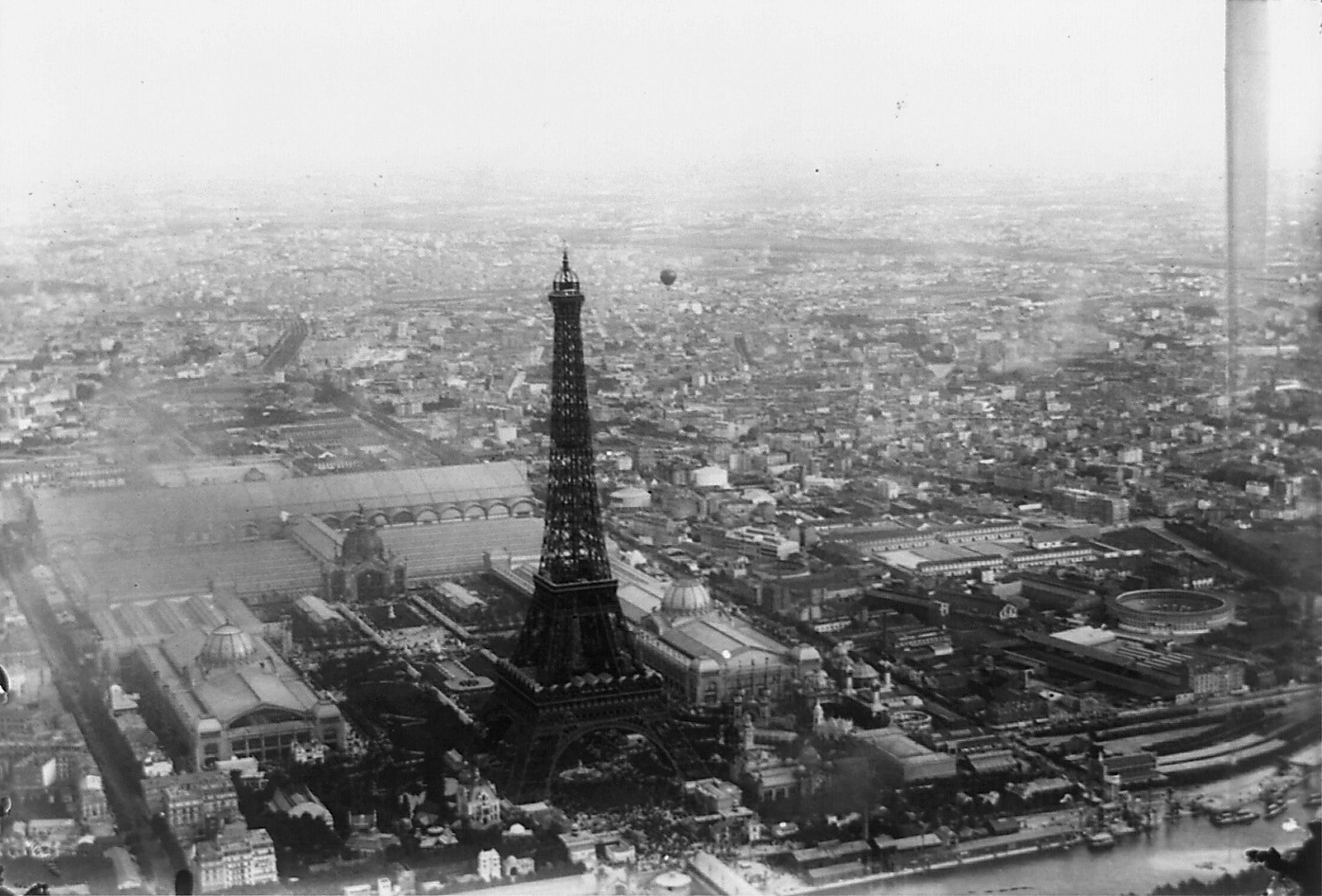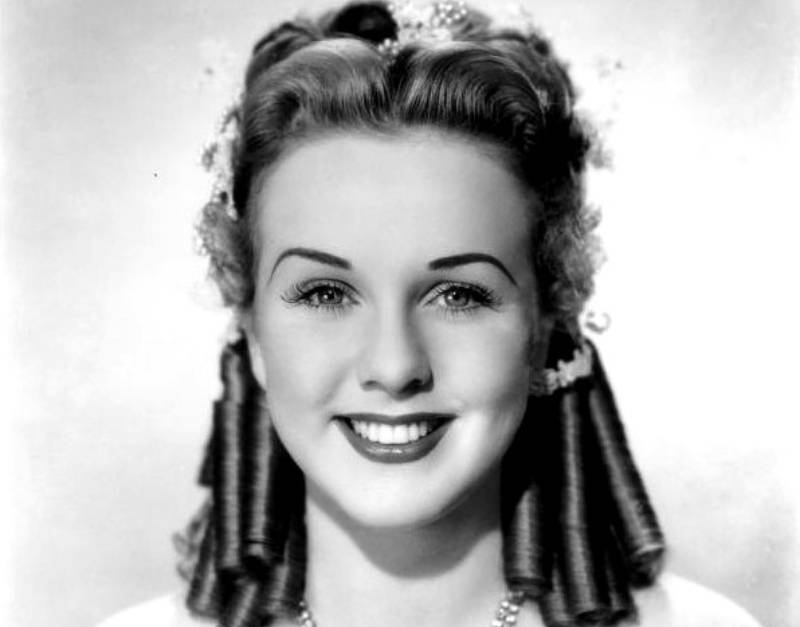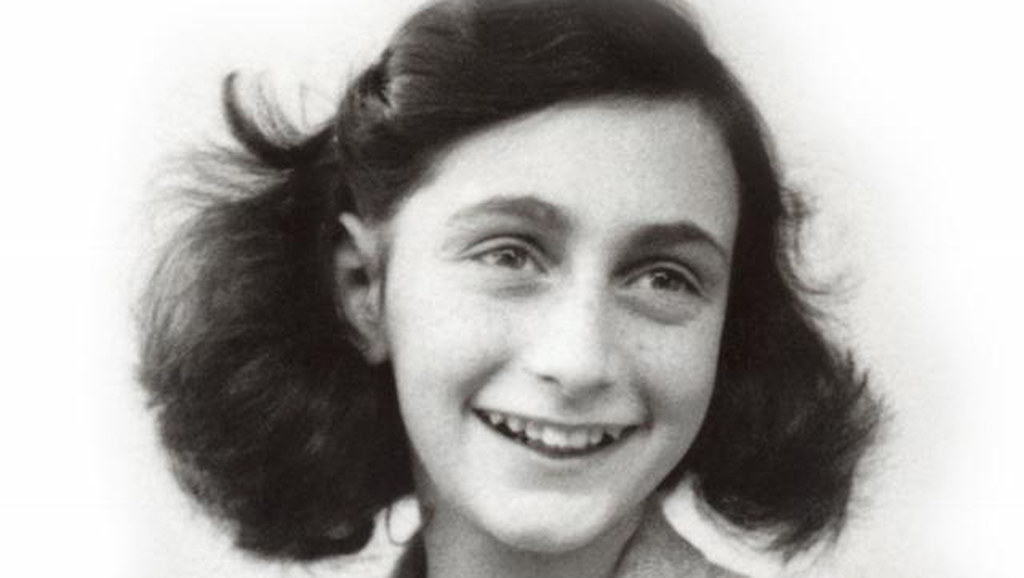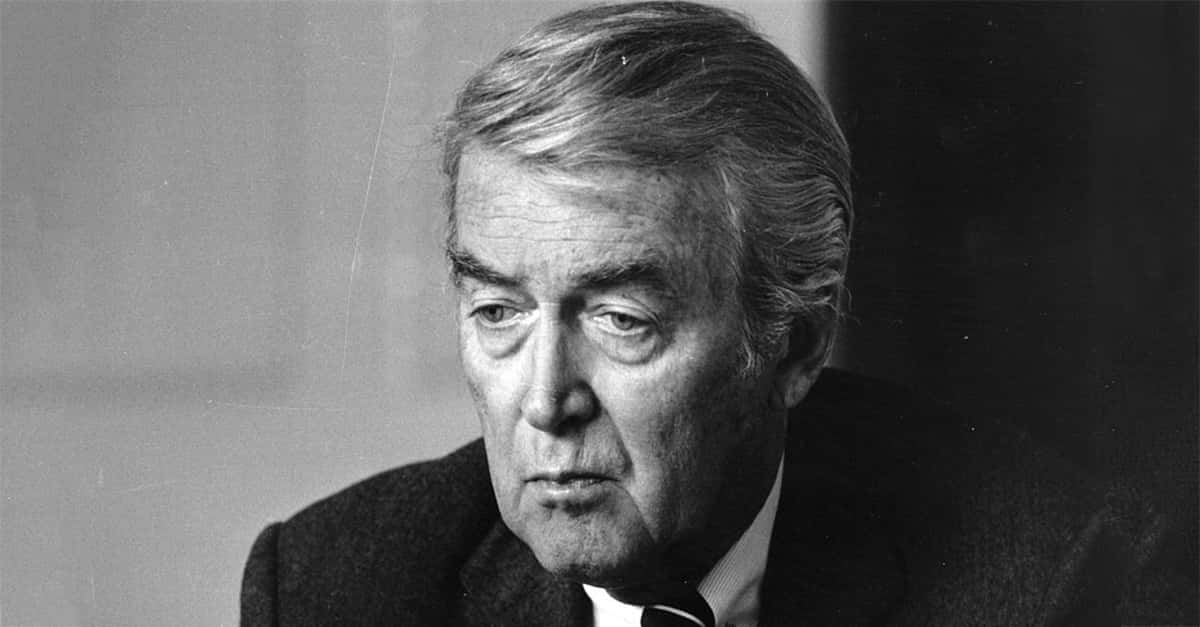The Eternal Child Star
Deanna Durbin’s legions of passionate fans had a firm grip on her career. When Durbin couldn’t bear the pressure anymore, she made an astonishing decision. 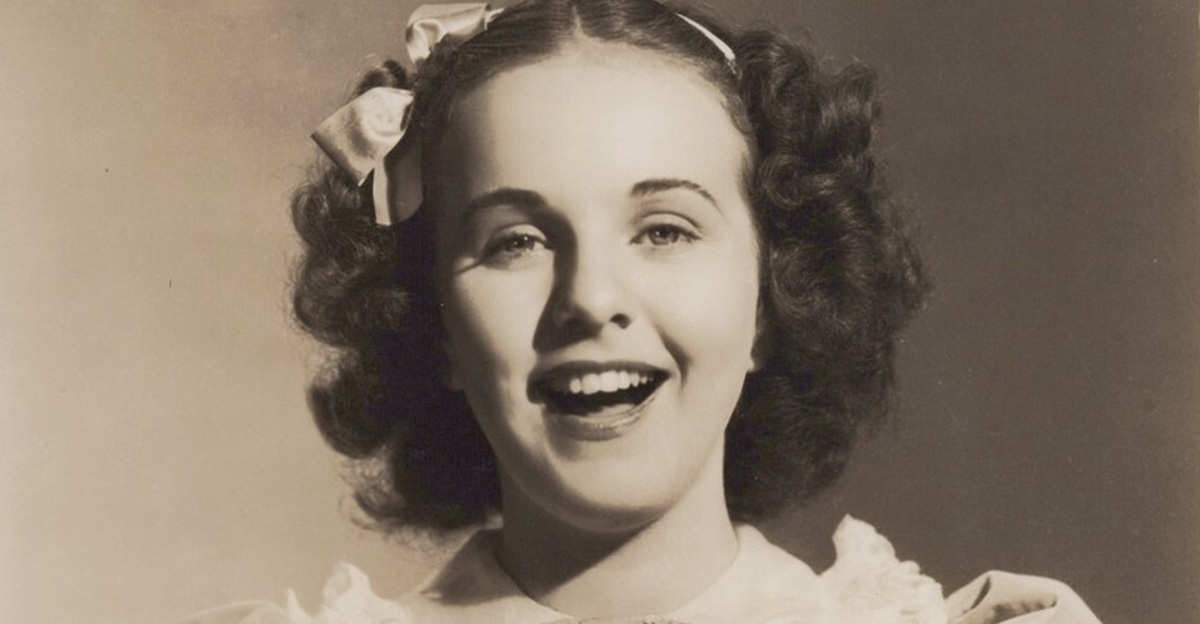
1. She Was Hollywood's Sweetheart
In 1947, Deanna Durbin was one of the highest paid female stars in Hollywood. She had scads of avid fans who helped rocket her to stardom and shaped her career in the process. So, why have most people never heard of her? The answer to that question lies in the tragic way Durbin's career ended.
2. She Made A Big Move
Deanna Durbin came into this world on a cold day in the winter of 1921. It was in Winnipeg, Canada, and her British parents named her Edna Mae Durbin. When Edna was still an infant, they packed up her and her older sister and moved to sunny California.
They were just settling into their new lives among the palm trees when the Durbins noticed something strange about their youngest child.
 Unknown author, Wikimedia Commons
Unknown author, Wikimedia Commons
3. She Was Extraordinary
What the Durbins noticed was that the little girl could really sing. In fact, they thought she was an extraordinary talent. They enrolled her in the Ralph Thomas Academy, which turned out to be an important move. Thomas himself saw Durbin’s talents, and he had connections.
This little girl from Canada was about to embark on a career that neither she nor her parents could ever have imagined.
4. She Got The Call
Producers at MGM pictures were searching for a young girl with a stunning voice, and they heard about Thomas’ favorite pupil. They were making a biopic about a famous opera star and needed someone to play her as a child. Durbin’s "mature soprano" voice stunned the vocal coach at MGM, so he set her up for the next stage.
Except the next stage was terrifying.
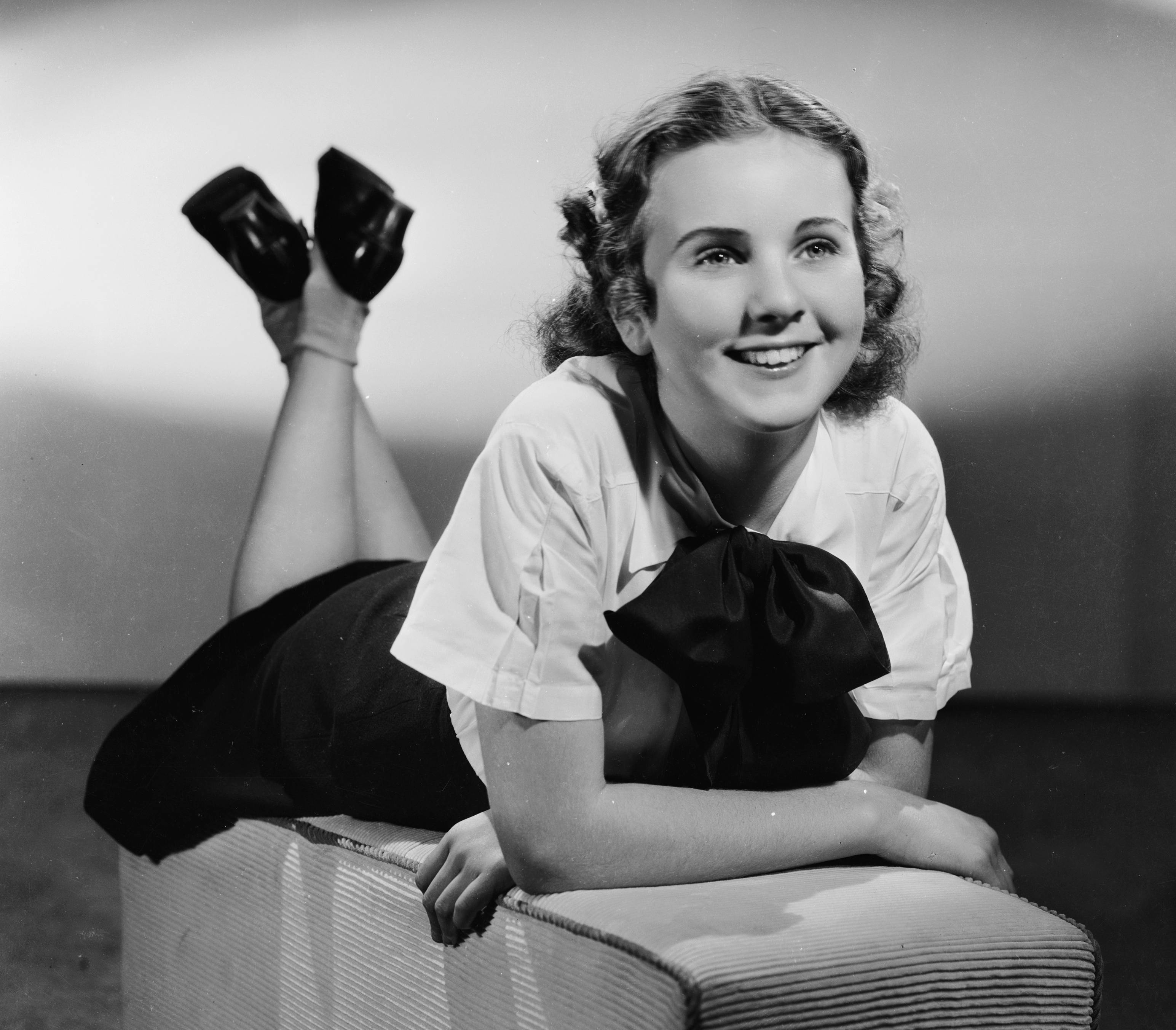 Clarence Sinclair Bull, Gettyimages
Clarence Sinclair Bull, Gettyimages
5. She Met A Scary Man
The head of MGM, Louis B Mayer, was a frightening man who’d seen all kinds of talent, and terrified even more burgeoning stars. Yet when he heard Durbin sing, he immediately signed her for a six-month contract. She'd managed to impress a difficult man, and her career was unrolling like a red carpet in front of her.
And then cruel fate pulled that rug right up from under her.
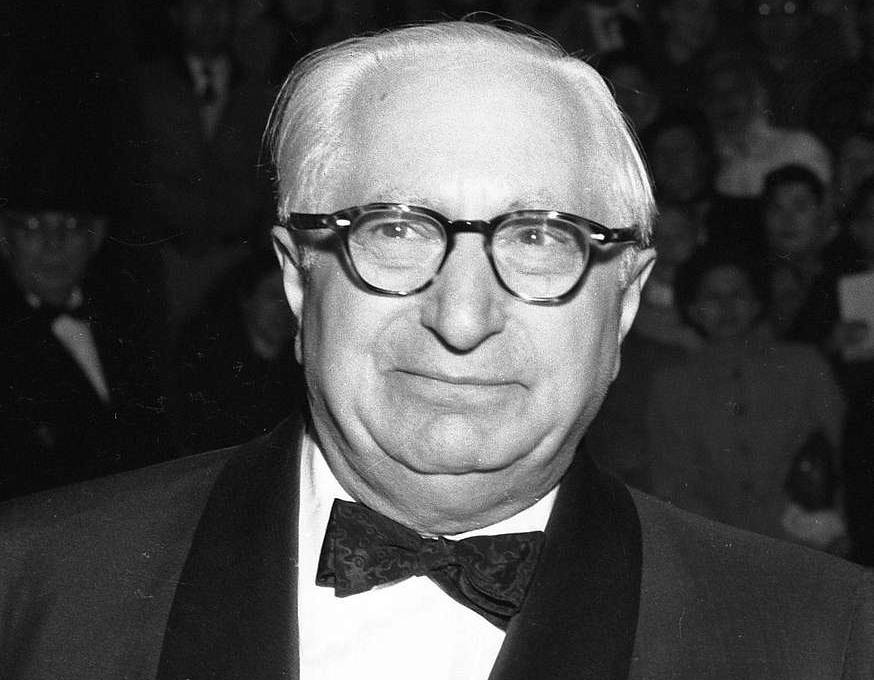 Los Angeles Times photographic archive, UCLA Library, Picryl
Los Angeles Times photographic archive, UCLA Library, Picryl
6. She Lost Her Shot
Durbin was about to learn a harsh lesson: Nothing is promised, especially in Hollywood. In the end, the film about the opera superstar never even happened. But that didn't mean Durbin could go back to being a normal kid. She did still have a contract with MGM, and they weren't about to let her take all that money without doing something.
They had a plan for her, and it was pure evil.
7. She Went Head-To-Head
MGM wanted to test how much of a draw Durbin was, so they pitted her against another young girl who could sing. Sadly for Durbin, this was none other than future Wizard of Oz star Judy Garland. The plan was to make a short movie featuring both girls and see which one the audiences liked. The results were surprising.
8. She Held Her Own
In the end, audiences actually liked Durbin and Garland equally. Then came a sharp disappointment. According to one report, even though Mayer decided to sign both girls by the end of the film, by that time Durbin's contract option had lapsed and she found herself out of a job anyway.
The other explanation is more gut-wrenching.

History's most fascinating stories and darkest secrets, delivered to your inbox daily.
9. She Was "Too Womanly"
Another version of these events indicates that while audiences liked both Garland and Durbin, Louis B Mayer was the one who had a change of heart. Although she'd passed MGM's test, Mayer reportedly saw the pretty Durbin next to the cute Garland and decided Durbin was “too womanly” for the teen roles he had in mind.
Whatever the truth, MGM didn't keep her. Then the twist came along.
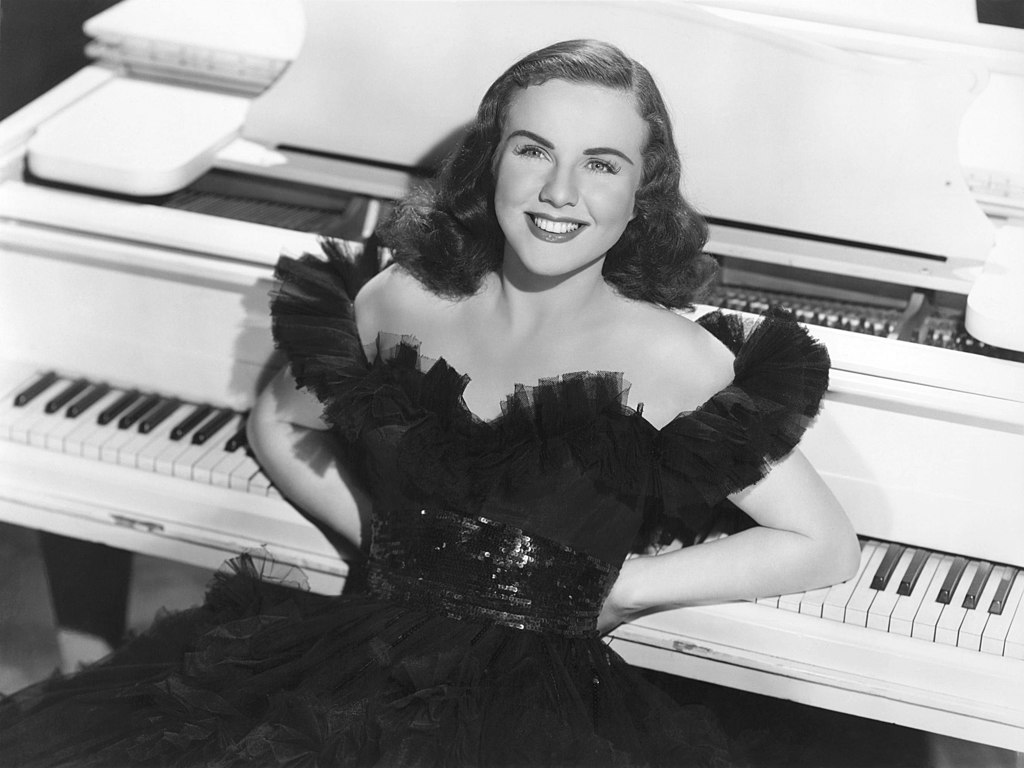 Unknown Author, Wikimedia Commons
Unknown Author, Wikimedia Commons
10. She Got Poached
At this time, MGM's rival Universal Studios was both hurting in the box office and paying very close attention to MGM's castoffs. So when Durbin failed to cinch her contract with MGM, Universal scooped her up at a bargain deal. But this came with its own kind of price.
 kevinchu509, Wikimedia Commons
kevinchu509, Wikimedia Commons
11. Tensions Were High
When Universal put Durbin—now going by the stage name "Deanna Durbin"—in the musical comedy Three Smart Girls, they needed a win. In fact, though they tried to hush it up, the studio was on the verge of bankruptcy. Meaning if the film failed, Durbin was likely back to being unemployed.
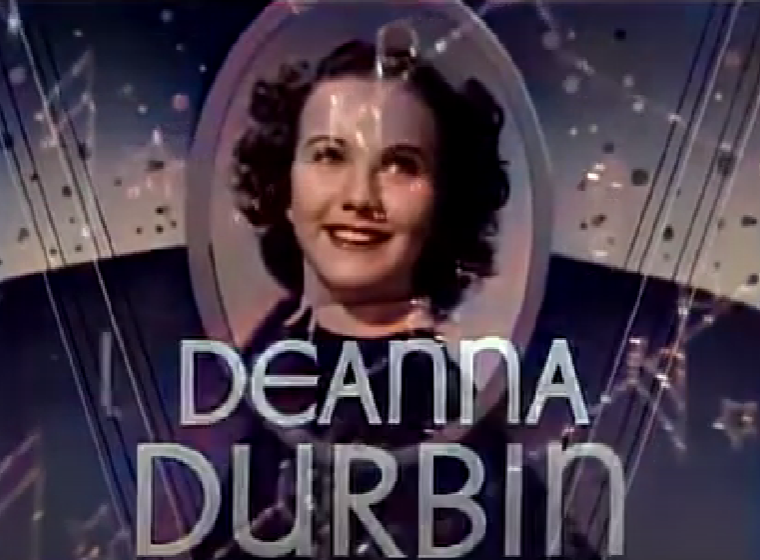 Universal, Three Smart Girls (1936)
Universal, Three Smart Girls (1936)
12. She Stood Out
Midway through filming Three Smart Girls, Universal realized something about Durbin. Although it was an ensemble cast, with a plot about three sisters trying to get their parents back together, the studio saw that Durbin was a unique talent.
She was so good, they decided to expand her role in the film. It was a big break...except now the pressure on Durbin was even greater.
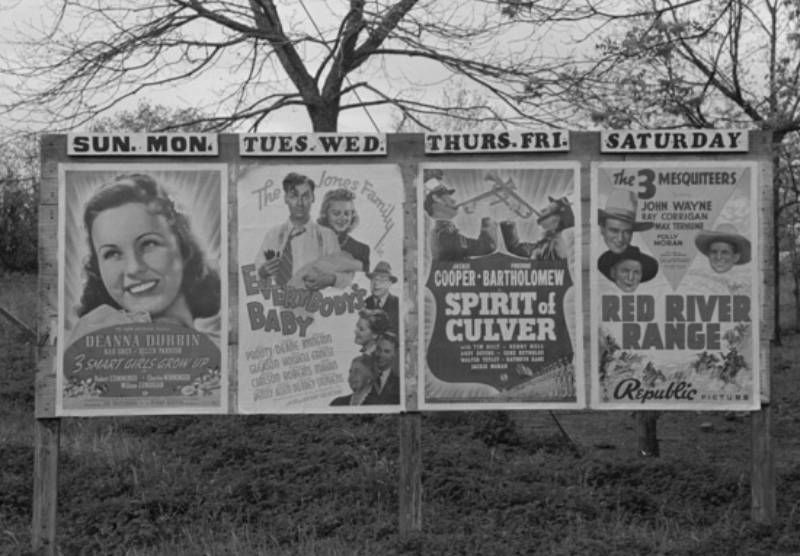 Lee Russell, LOC's Public Domain Archive
Lee Russell, LOC's Public Domain Archive
13. She Was A Charm
When Three Smart Girls came out in 1936, Durbin got everything she was hoping for. Not only was it a hit, it also received a nomination for Best Picture from the Academy. The success of the film, and Durbin's involvement in it, is widely credited with saving Universal from collapse.
The studio certainly saw Durbin as a good luck charm, and called her “Universal’s New Discovery". But this success was about to sour.
14. Disney Didn't Like Her
In 1936, Walt Disney was in the middle of an epic search for an actor to voice Snow White in the company's first big animated feature. Seeing a once-in-a-lifetime chance, Durbin auditioned for the part. She got a cruel reply. Walt Disney himself rejected her, saying the 15-year-old was "too old".
Mayer had called her “too womanly” and now Disney thought she was too old. Then again, Durbin had a way of acting it.
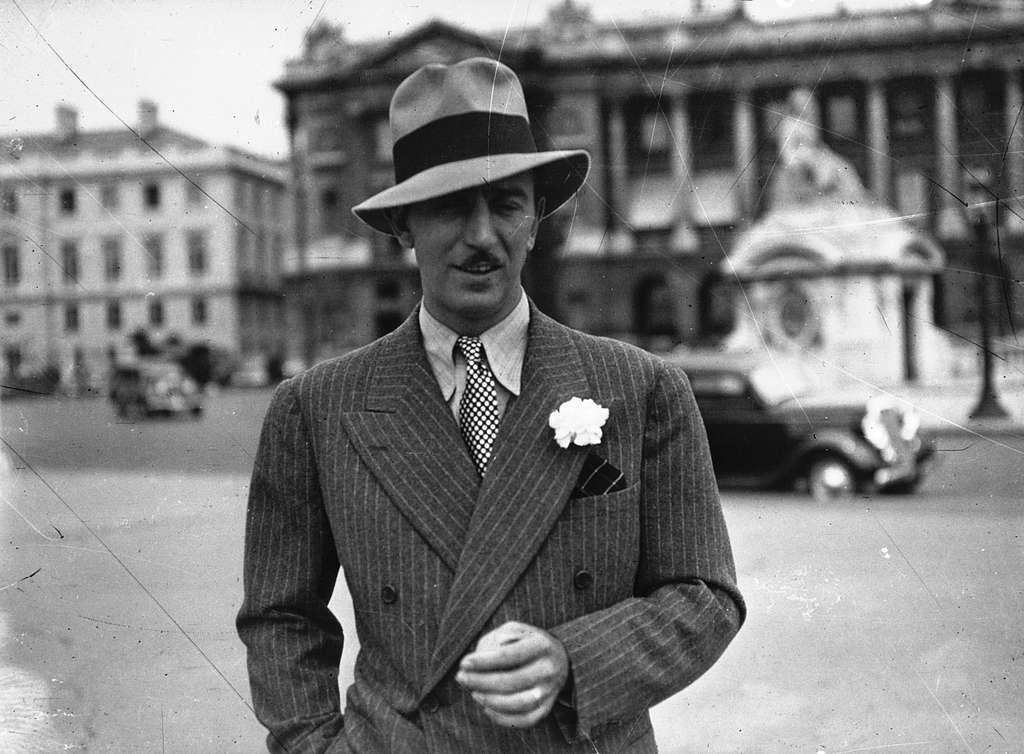 Bibliothèque nationale de France, Picryl
Bibliothèque nationale de France, Picryl
15. She Knew What She Wanted
Durbin’s next film with Universal, One Hundred Men and a Girl, is about a girl who assembles an orchestra. She was still just a teenager at the time, but when it came to casting the maestro, Durbin started acting like one of the producers.
It was reportedly her idea to hire renowned conductor Leopold Stokowski to play the part, and Universal listened. Only, her charisma was starting to garner her some unsavory fans.
16. She Had Powerful Fans
One Hundred Men and a Girl got another Best Picture Oscar nomination, and Durbin got a bizarre cross-section of admirers. While British Prime Minister Winston Churchill apparently loved her, so did his arch enemy, Italy's Benito Mussolini.
Universal took full advantage of this popularity...too much advantage.
17. Her Studio Shamelessly Used Her
Obviously, Durbin’s films were earning money for Universal, but it was more than just that. Universal created a Deanna Durbin doll, dresses, and even a series of books where Durbin solved mysteries much like Nancy Drew. Universal was raking it in, but this Deanna Durbin mania became a double-edged sword.
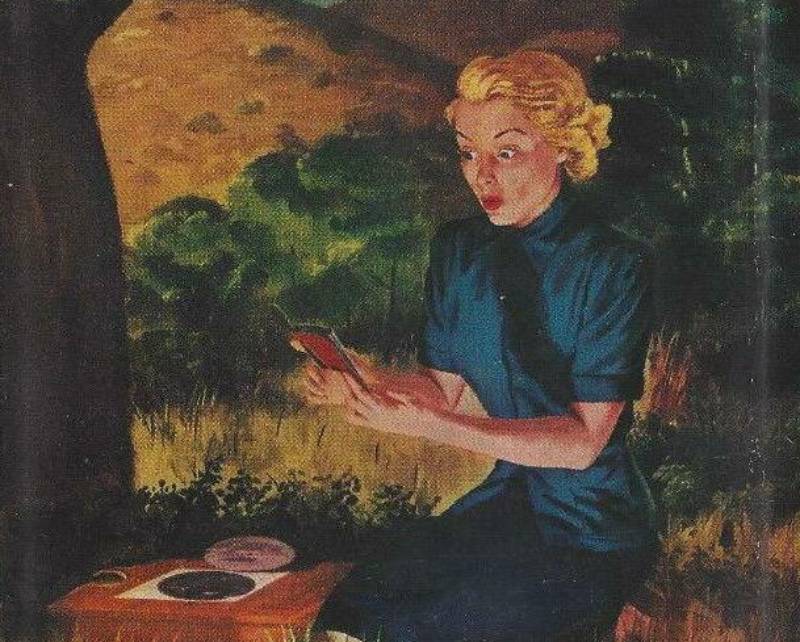 Bill Gillies, Wikipedia Commons
Bill Gillies, Wikipedia Commons
18. She Was Chaste
So far in her short career, Durbin had only played young girls who didn’t yet have a thought about romance. Considering how well she was doing for them just as she was, Universal was reluctant to change her image in any way. The most they did in Mad About Music was allow her a “chaste romance”.
In her next film, That Certain Age, Universal was finally ready to push that envelope a little further. It backfired.
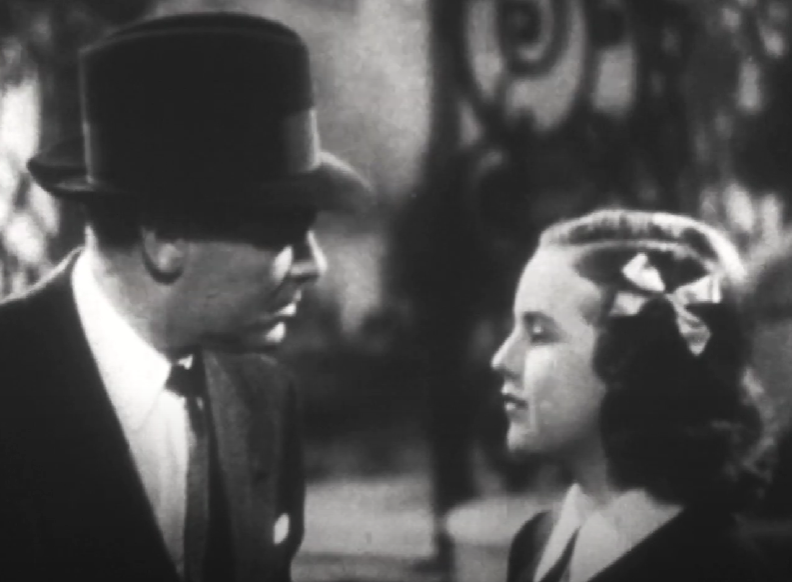 Universal, Mad About Music (1938)
Universal, Mad About Music (1938)
19. Her Fans Revolted
Before That Certain Age came out, a rumor went around that Durbin’s character would elope and even have an onscreen kiss. Durbin’s fans’ response was quick and severe. They swamped Universal with letters protesting their darling Durbin playing a romantic character.
They weren't ready to see Durbin kiss a man on film, and the studio's response sealed Durbin's fate.
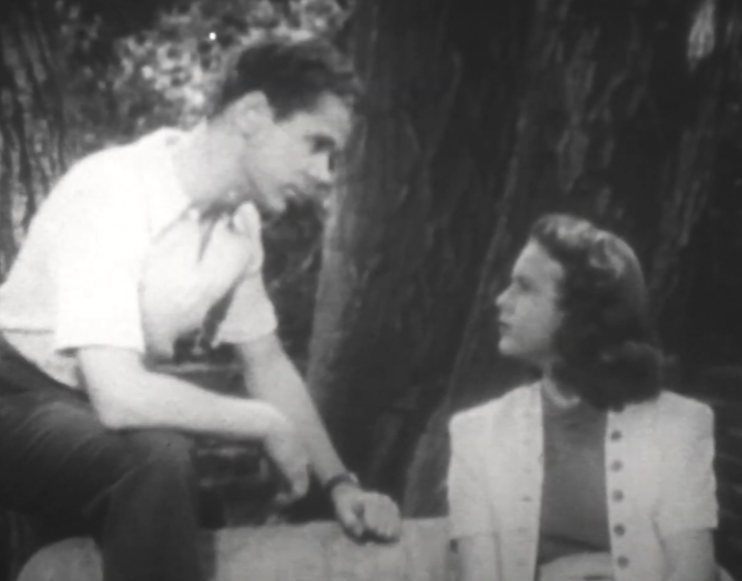 Universal, That Certain Age (1938)
Universal, That Certain Age (1938)
20. She Was Stuck As A Child
Universal knew that Durbin’s legions of fans were the ones that paid their checks, and they wrote any romance right out of the film. So, the fans got what they wanted: a Durbin that was a perennial child. That’s all fine and dandy, except the real Durbin was nearing 18 years of age.
Well, this only got worse.
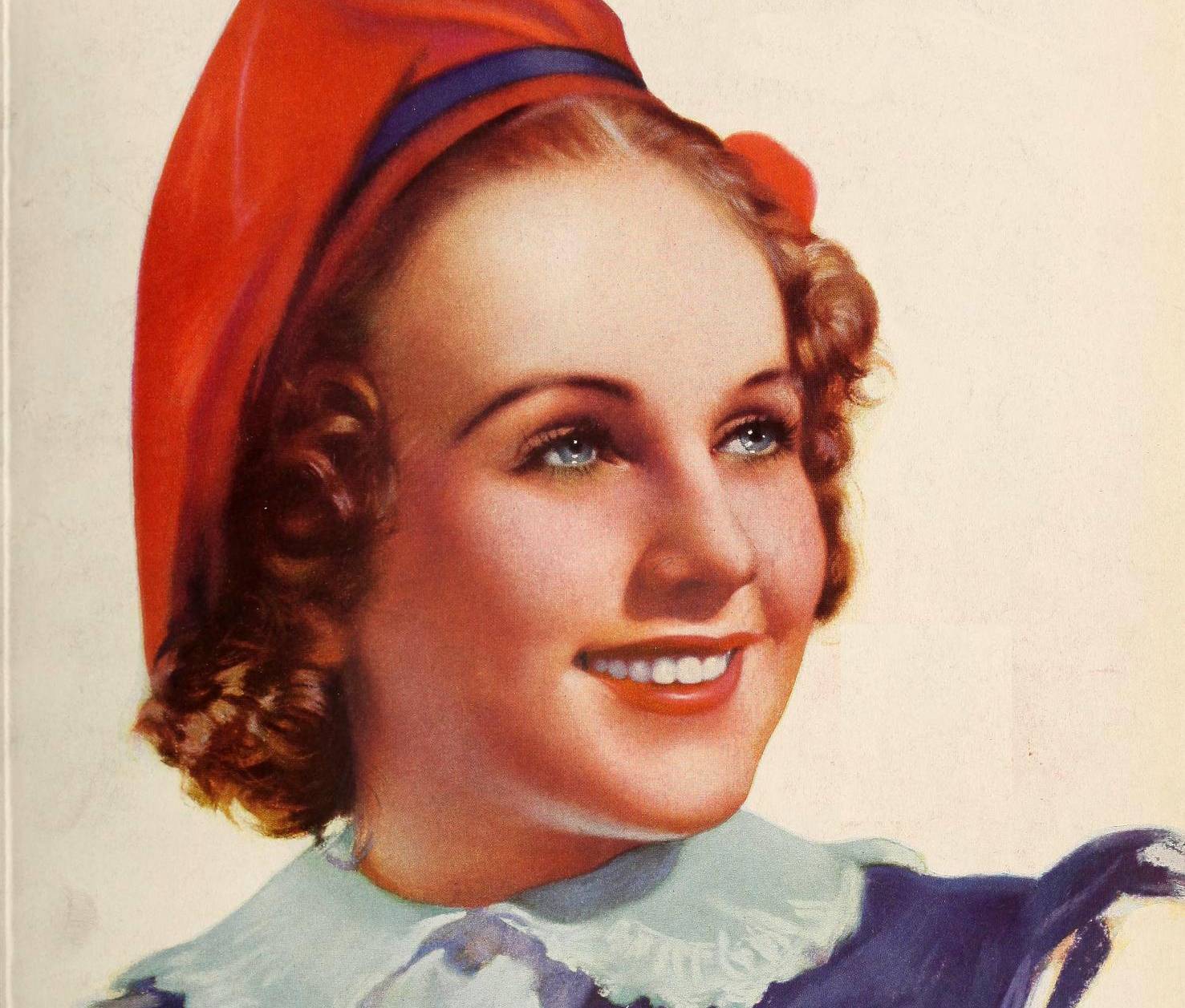 Jose M. Recoder, Wikimedia Commons
Jose M. Recoder, Wikimedia Commons
21. She Had Stunted Growth
Durbin’s next film was a sequel to Three Smart Girls. There certainly was romance in the film, but Universal cleverly steered it well away from Durbin. The story has Durbin’s sisters struggling with a love triangle, while Durbin is left playing the chaste intermediary.
The title was Three Smart Girls Grow Up, but only two of them had. But it wasn’t only the fans that stopped Durbin from growing up.
22. She Won An Oscar
Winning an Academy Award can never be a bad thing. Well, almost never. If Durbin was trying to get acceptance as an adult actor, her win of a special Juvenile Academy Award in 1938 kept her firmly in the role of child actor. Something had to give, and it gave spectacularly.
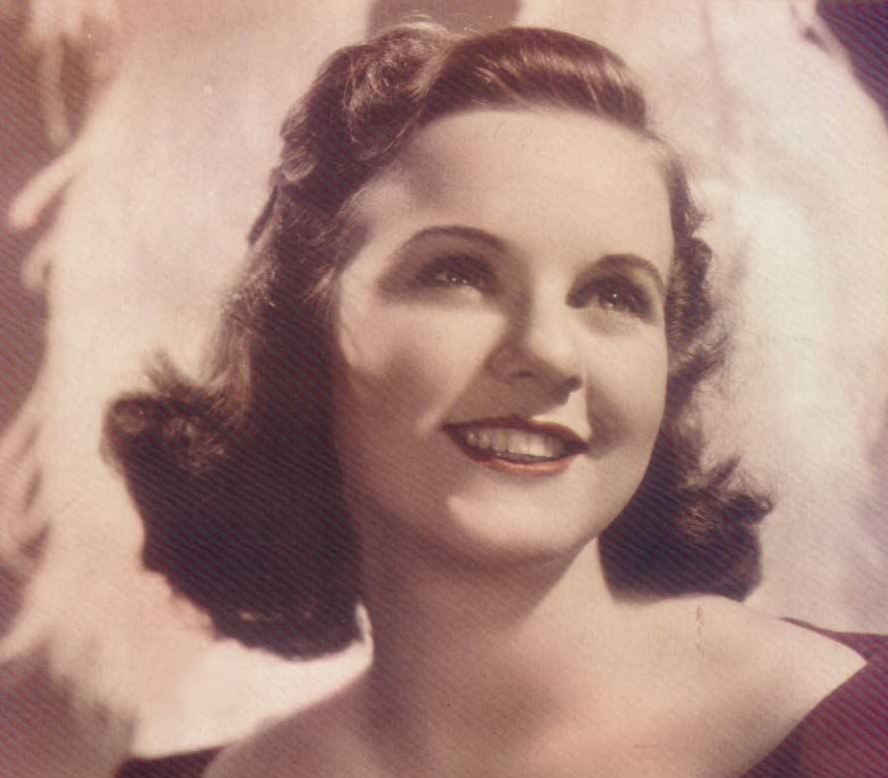 CINELANDIA magazine, Wikimedia Commons
CINELANDIA magazine, Wikimedia Commons
23. She Finally Became A Love Interest
One of Durbin's next films pulled out every stop to get her fans on board with her having romantic desires. Called First Love, the Cinderella adaptation stated its intentions outright; the poster even had "Deanna's in love" scrawled across it. But behind these bold statements, the studio was scrambling.
24. They Thought They Owned Her
First Love's producer Joe Pasternak knew going into the film that Durbin was, as he recalled, "one of those personalities which the world not only takes to its bosom but insists as regarding as its personal property". Accordingly, the studio meticulously choreographed Durbin's next stage of development, from how they dressed her in the film to how they presented it to audiences.
Searching for her love interest was a whole other story.
25. They Searched High And Low
Pasternak later called the no-holds-barred casting call for Deanna's love in the movie as "a veritable Gone with the Wind-style search". After much hand-wringing about what her fans would say if they picked the wrong man, the studio landed on unknown actor Robert Stack. And then they made a bizarre request.
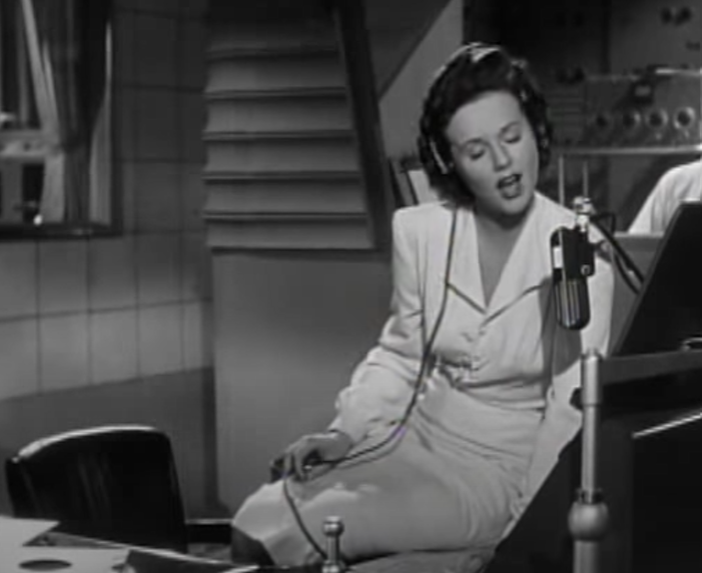 Universal, Something in The Wild (1947)
Universal, Something in The Wild (1947)
26. They Put Him Through It
Everybody knew Deanna's screen interest had to be pitch perfect. Accordingly, the studio forced him into a big change. Although Stack had naturally fair, wavy hair, Universal's seasoned makeup artist convinced him that "no blond has ever made it as a leading man" and got Stack to dye his locks dark and straighten them.
Universal had found—and altered—the perfect guy. Now, they had the hardest part of all: Durbin's first on-screen kiss.
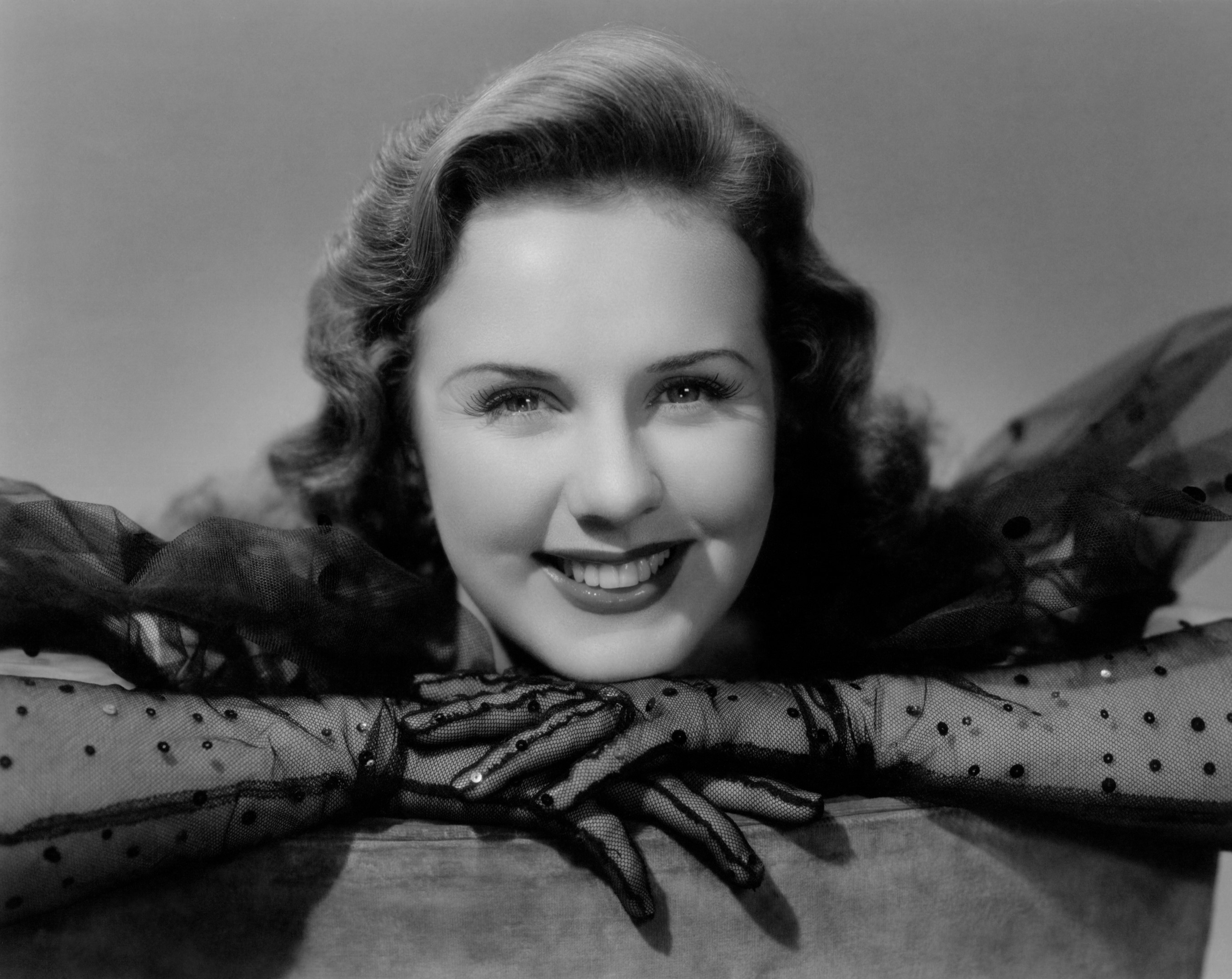 De Carvalho Collection, Gettyimages
De Carvalho Collection, Gettyimages
27. Her Kiss Flopped
Everyone was waiting to see how Universal would handle Durbin's movie kiss, especially after they began promoting it left and right. But when the reel played...sparks didn't fly. Film critic Frank S Nugent noted wryly that the kiss had such "idyllic restraint that not even the queasiest stockholder could fear that Miss Durbin will burn herself out emotionally before she is 20".
Even so, The Kiss did launch Stack as a matinee idol and nudged Durbin into actual cinematic adulthood. But her next role took this a little too far.
 Alina Cardiae Photography, Shutterstock
Alina Cardiae Photography, Shutterstock
28. She Had An Awkward Phase
Some would call Durbin’s next leap into more mature roles a little creepy. In It’s A Date, Durbin's character is romantically involved with the same man as her own mother. One of her next films went one step further. The title was Nice Girl? and the clearly-placed question mark made audiences question whether she was or not.
With some mature roles under her belt, Durbin took it as an opportunity to make a very adult decision.
29. She Married A Director
As further proof she was no longer a little girl pining for her first kiss, Durbin made a life-altering change. In 1941, she walked down the aisle with assistant director Vaughn Paul. Then, as a way to completely shut the door on her good-girl childhood, she starred in the screwy romantic comedy It Started with Eve, which billed her as "a new delightful harum-scarum Deanna”.
Little did Durbin know, the production was doomed.
30. She Was On A Cursed Set
It Started with Eve was riddled with bad omens. After a heated argument with the director, the screenwriter stalked off set with 40 pages left to be written. Richard Carle, who played a small but significant role in the film, died three weeks in and they had to reshoot practically all the scenes.
As the icing on the cake, both Durbin and her co-star Charles Laughton got sick one after the other, severely affecting the production timeline. But the worst was yet to come.
31. She Got Awful News
While It Started with Eve was still filming, Durbin's long-time producer Joe Pasternak, who had been on her sets for years, announced he was leaving Universal. Her reaction was heartbreaking. Pasternak later related, "It was the only time in our years together I saw her weep".
Durbin begged him to stay, but to no avail. It was the beginning of the end for Deanna Durbin.
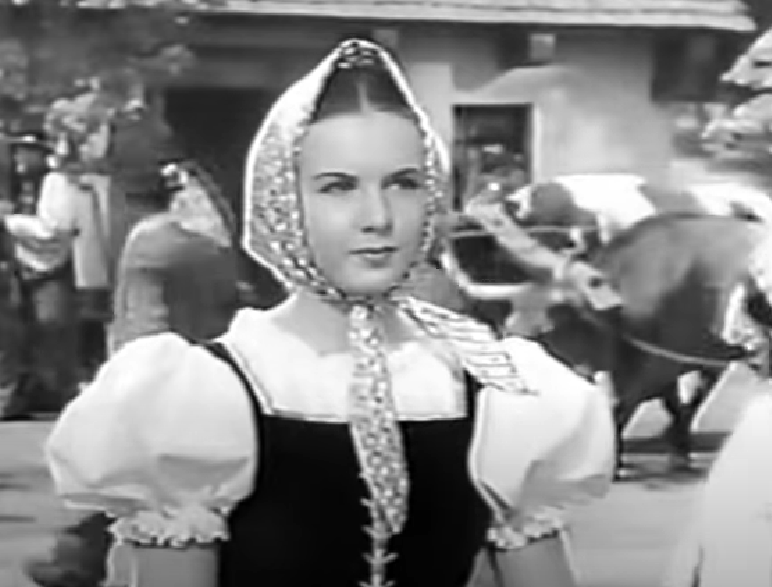 Universal, Spring Parade (1940)
Universal, Spring Parade (1940)
32. She Made A Diva Move
After Pasternak left, Durbin's relationship with Universal went downhill. Her next film, They Lived Alone, was also a disaster—so much so that it never even got off the ground. Although Universal pushed Durbin to make it, she disliked her role, and hated that the studio had made zero effort to involve her new husband Vaughn Paul in the film.
In the end, she flatly refused to make the picture. Universal retaliated in kind.
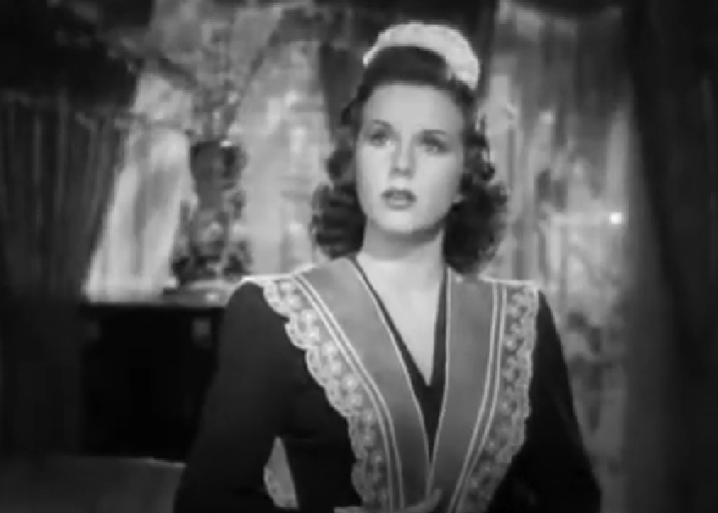 Universal, His Butler's Sister (1943)
Universal, His Butler's Sister (1943)
33. They Punished Her
Hollywood studios weren't used to hearing "no," especially not from their good-girl child star. To punish Durbin, they slapped her with a full-on suspension that started on from October, 1941 and lasted until February of the next year. But when she made her comeback, Durbin did it on her own terms.
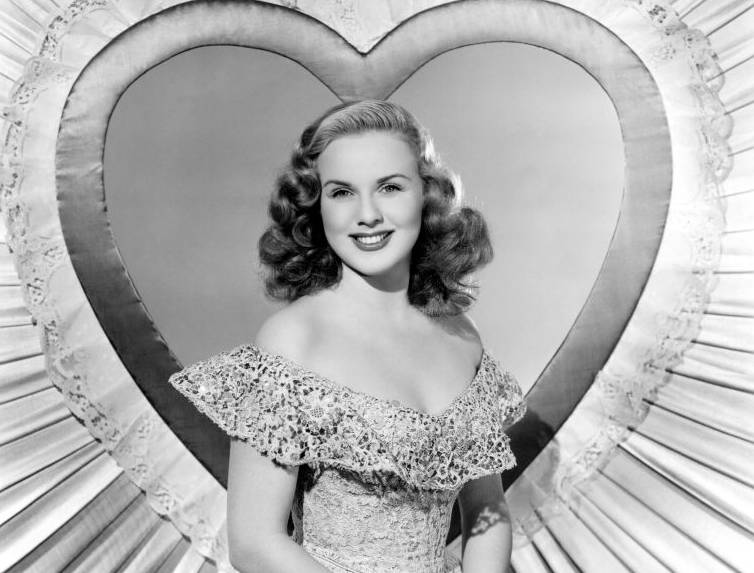 De Carvalho Collection, Gettyimages
De Carvalho Collection, Gettyimages34. She Got A Huge Victory
Eventually, Durbin came to an agreement with Universal—one that suited her. She came out of the talks with full approval of the songs, the stories, and even the directors of her next films. Durbin was making sure that even without her favorite producer Joe Pasternak, she would have control on set. And oh, did she.
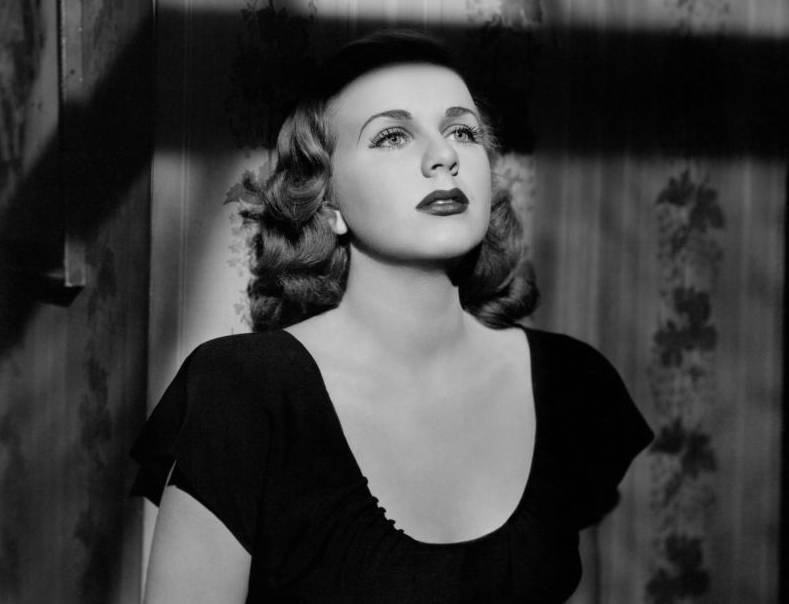 De Carvalho Collection, Gettyimages
De Carvalho Collection, Gettyimages
35. She Fired Her Co-Stars
After patching things up with Durbin, Universal was ready to make easy money with a third installment of the successful Three Smart Girls franchise. But Durbin's demand was a total power move. She told Universal she wanted to axe the other two sisters in the film and have the movie only center on her.
Incredibly, it worked.
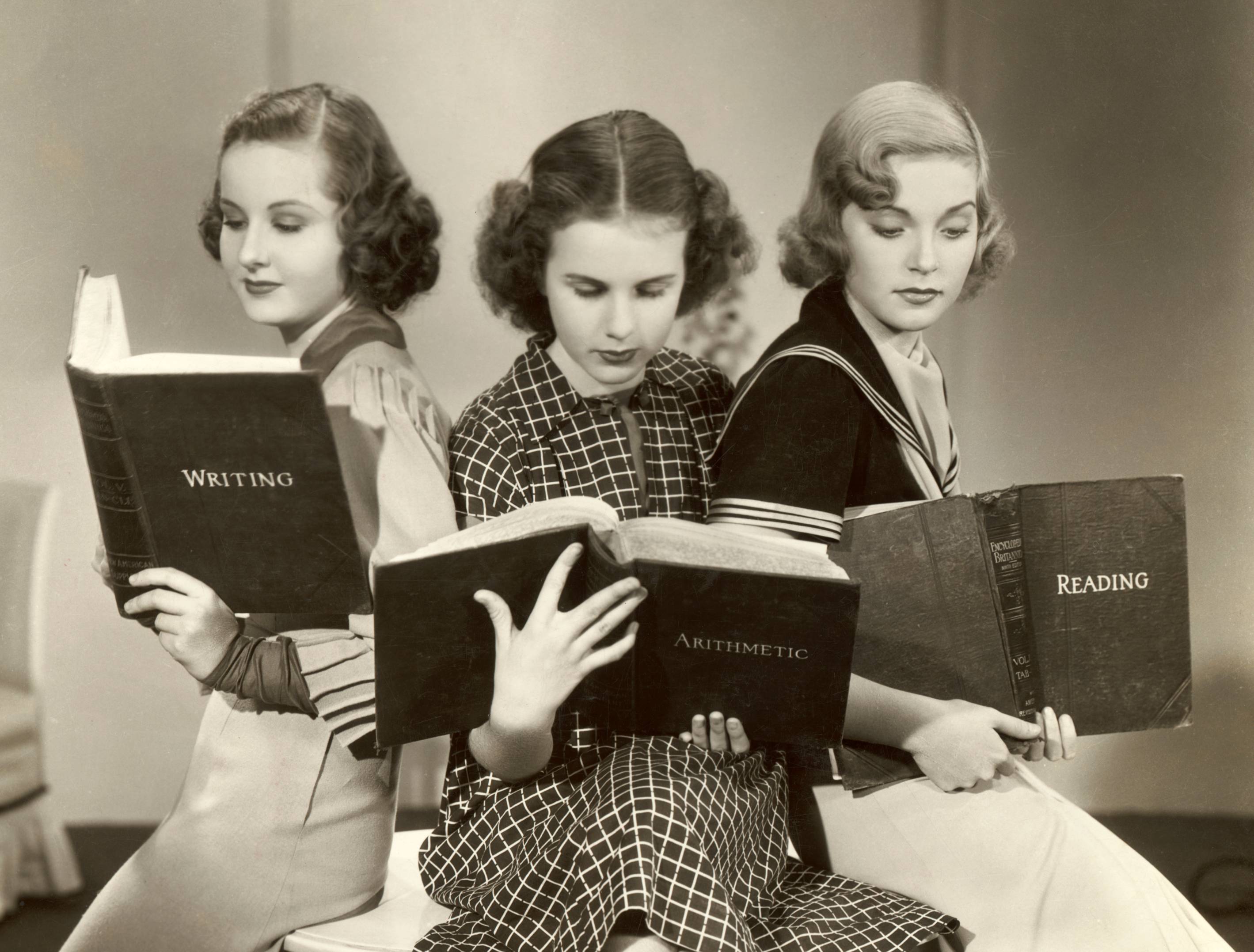 John Springer Collection, gettyimages
John Springer Collection, gettyimages
36. She Took Over
Universal agreed to Durbin’s demand, and they turned Three Smart Girls Join Up into Hers to Hold. The other two smart sisters humiliatingly lost their parts, and only appeared in short clips from the previous film. More than that, Hers to Hold was also firmly a romance.
From the outside, it looked like Durbin was getting everything she wanted. That wasn't the case at all.
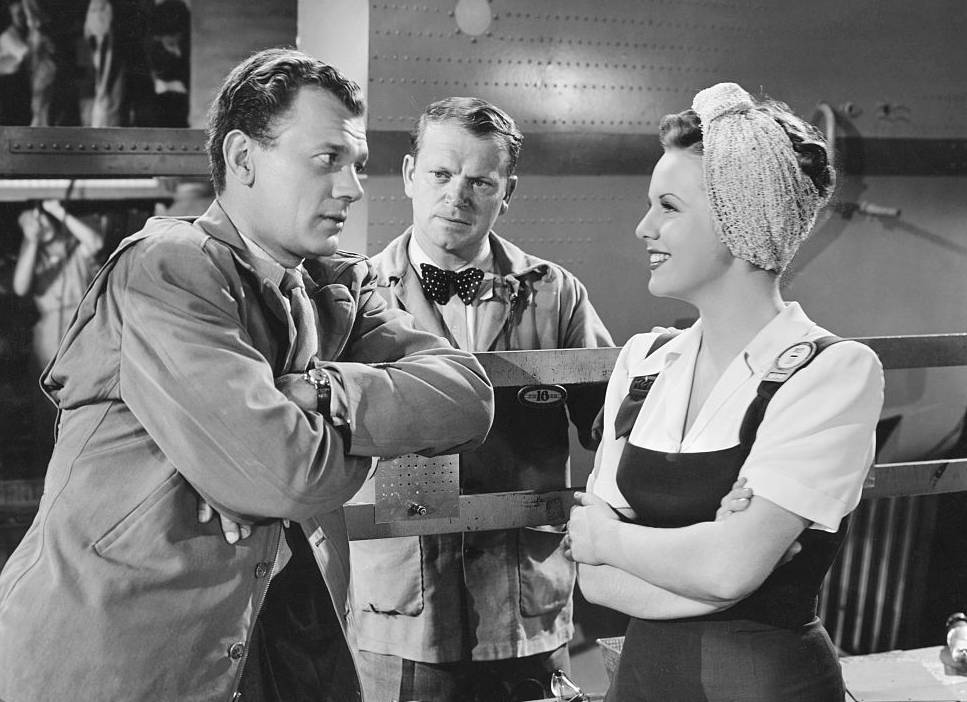 John Springer Collection, Gettyimages
John Springer Collection, Gettyimages
37. Rumors Began About Her
One year after Durbin’s marriage, her husband enlisted in the US Navy, sparking rumors that the marriage was not a happy one. In response, Durbin publicly stated that she would “never dream of divorcing a man serving his country”. But it didn't take long for the ugly truth to come out.
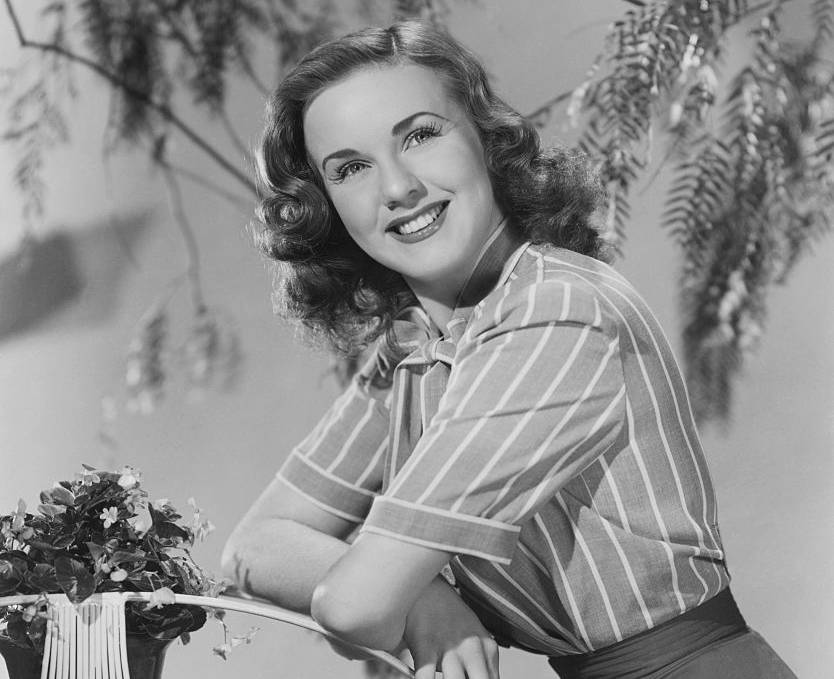 John Springer Collection, Gettyimages
John Springer Collection, Gettyimages
38. She Lied To The Press
Just months after her denial to the press, Durbin did indeed file for divorce from Vaughn Paul. She also aired their marriage's dirty laundry. In her statement to the courts, Durbin complained about Paul's late-night partying, the way he ignored her when she needed help, and his constant criticism of her film work.
Still, although Durbin was done with Paul, she wasn't done with bad romantic decisions.
39. She Rebounded
Not long after the dissolution of her first marriage, Durbin walked down the aisle again. This time, she fully mixed business with pleasure: Her new husband was Felix Jackson, who now took over as producer on many of her films. At first, it seemed like a success, with Jackson lining up the film noir Christmas Holiday opposite Gene Kelly for her.
Except Durbin had bitten off more than she could chew.
40. She Was Afraid
Christmas Holiday wasn't Durbin's typical film fare. Although they toned down many of the risque details of the original W Somerset Maugham novel, it was still a movie about a woman (played by Durbin) working in a bordello. It proved too much for her. After a lifetime of being stuck in squeaky-clean roles, Durbin couldn't seem to get into character.
As director Robert Siodmak noted, Durbin "flinched" when it came to the sultry part: "she always wanted to look like nice wholesome Deanna Durbin pretending" to be a night worker. More trouble was on the horizon.
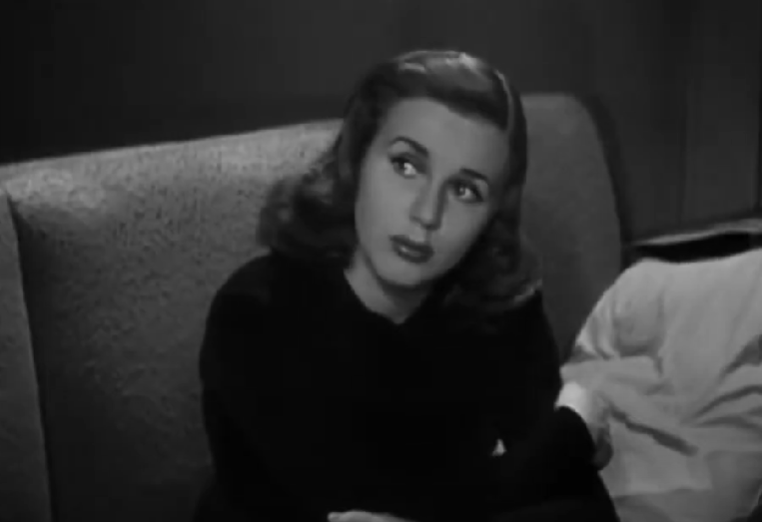 Universal, Christmas Holiday (1944)
Universal, Christmas Holiday (1944)
41. Her Fans Abandoned Her
Durban’s next film was another noir called Lady on a Train. Even though this one had a lighter touch, Durbin’s fans couldn't get on board. Apparently, Christmas Holiday was enough of Durbin in dark mode for them, and precious few of them came out to support her. The film flopped.
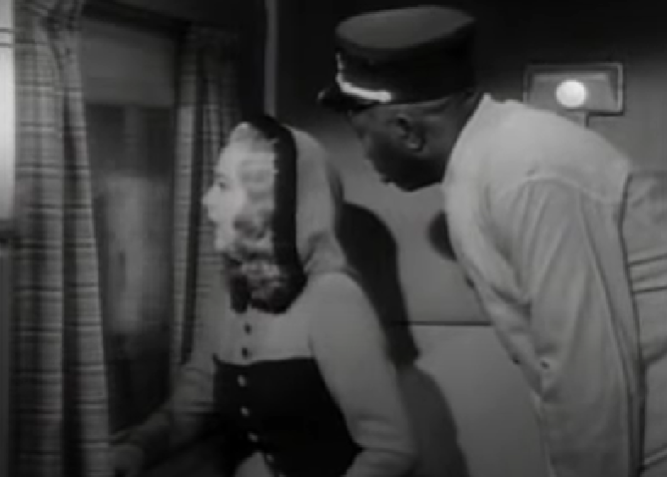 Universal, Lady in a Train (1945)
Universal, Lady in a Train (1945)
42. She Almost Hit The Top
In spite of the failure of Lady on a Train and her other troubles, just a year later Durbin gained the title of Hollywood’s second-highest paid female actor, only losing out to Bette Davis. Completing the picture, she and Jackson also welcomed a baby girl that year.
Durbin had a great salary and a loving family, and she had finally bounced back to have the perfect life. Then it came crashing down, almost literally.
43. Her Husband Dumped Her
Durbin’s husband Jackson did two surprising things within months of her salary successes and childbirth. In November, 1946 he unexpectedly walked away from Universal, where he’d been producing his wife’s latest films. That wasn't the worst of it. In January of the following year, he also walked away from Durbin.
Incredibly, by way of explanation Jackson simply told her he "preferred being single". The personal heartbreak took its toll on Durbin's career.
44. She Gave In
With children to support and her husband no longer in the picture, Durbin felt she had no choice but to go back to the sweet, innocent mode her fans preferred her in. In 1947 and 1948, she made four light musical comedies in a row, which she later called "terrible". Well, "terrible" doesn't cut it for her next hurdle.
45. She Was A Studio Hostage
Shortly after this run of tepid musicals, Universal decided that Durbin owed them a tidy sum in earnings they had given to her as an advance. When Durbin fought them, Universal pushed harder, and eventually insisted that to cover the costs, she would have to make three more films with them.
Then the final nail in the coffin came.
46. They Kicked Her Out
In the end, Durbin didn't even end up making those three films, under duress or otherwise. That's because Universal, apparently thoroughly fed up with the actress who was once their darling, let her contract expire before she made another reel with them and paid her out.
On the bright side, Durbin was finally free to do what she wanted. Her next move was telling.
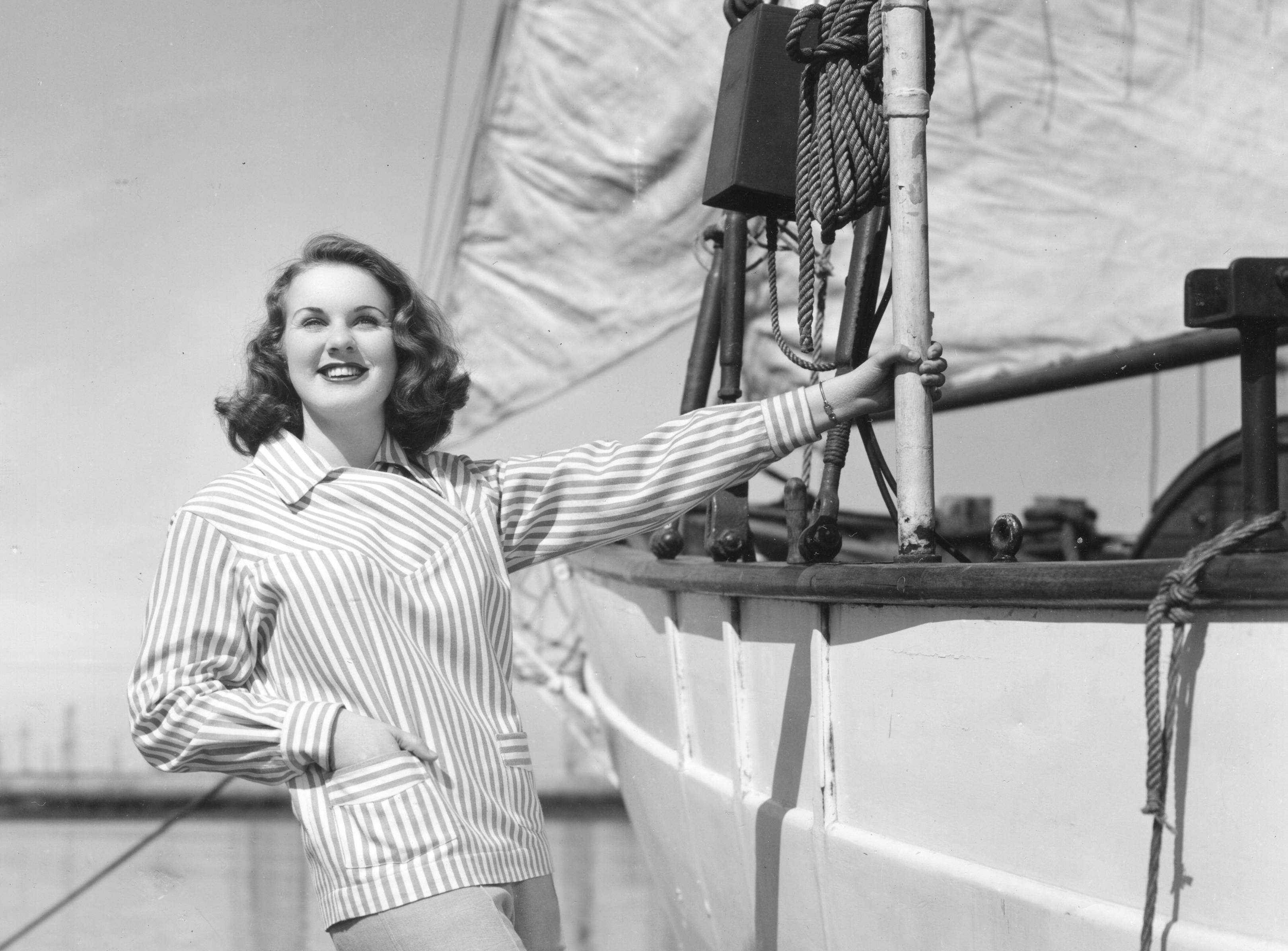 Transcendental Graphics, GettyImages
Transcendental Graphics, GettyImages
47. She Ran Away From Hollywood
By now, Durbin was so fed up with Hollywood, she decided to retire well before she'd even turned 30. She escaped to Paris and refused to return. When her old friend Joe Pasternak tried to convince her to act again, she replied bitterly, "I can't run around being a Little Miss Fix-It who bursts into song—the highest-paid star with the poorest material".
Instead, she made other plans.
48. She Found An Old Flame
In her new life, Durbin stuck up an old flame. While living in France, she married Charles Henri David, who had been her director on the ill-fated noir Lady on a Train. They lived in a farmhouse outside Paris, raised Durbin’s daughter with Jackson, and also had a son together.
Durbin spent her next years totally avoiding stardom, even turning down a Broadway role as Eliza Doolittle in My Fair Lady. But she did come back with one last searing indictment of the film industry.
 Unknown author, Wikimedia Commons
Unknown author, Wikimedia Commons
49. She Told The Truth
Durbin lived to the ripe old age of 91, but before she passed in 2013 she did take the time to comment on her career. In 1983, she gave a rare and frank interview to film historian David Shipman, where she confessed how she resented that as she grew up in Hollywood, her "acquired maturity had to be hidden under [a] childlike personality".
In the same interview, she spoke of "Deanna Durbin" in third person, described her as a stage of development in her distant past, and went by her birth name Edna. Durbin had walked away from stardom and never looked back.
50. They Found Her Picture
Anne Frank, the famous child diarist who hid herself away from German soldiers in a secret annex, was revealed to be a Deanna Durbin fan, just like so many other young girls around the world. When she was in hiding, Frank hung a picture of Durbin on her wall. Something about Durbin made Frank feel happy or maybe even inspired.
That’s a legacy Durbin could certainly be proud of.
You May Also Like:
Tatum O’Neal Endured An Upbringing No Child Deserves
Brandon Lee’s tragic on-set death is proof of how dangerous Hollywood can be.
Dustin Diamond’s story is proof of just how bad things can get for teen stars.

